Develop friendships @manuelame | klipklaar.nl
A presentation at Refresh Conference in October 2018 in Groningen, Netherlands by Maike Klip

Develop friendships @manuelame | klipklaar.nl

So… I am married to a front end developer. Yes, everything you’ve heard, is true.

On our wedding day he vowed that he would always love me and help me out. Which he does. And for me that means helping me out with my laptop, internet and all the technical things.

My password manager doesn’t work anymore… Having someone help you out with all things tech is a big plus for me.

Folders that are named: “Maike don’t throw this away.” It might not look like the ideal solution but for me it is.

How do I put music from my phone on the speakers?

Figured it out. So good with technical stuff <3
In UX I would be called a dumb user. But my husband would never. He always supports me. He always believes in me.

But of course I am not here doing a talk because I’m married to a front end developer. I wish everything in life would be that easy.

I am doing a talk because I am a ux researcher. However, a lot of the things that I know and do in my work, I have learned from this relationship with Jasper. Let me explain.

Let’s start with a quick recap of my career so far. I work for the Dutch government and am part of the design team of the Department of Education.

You can find me at schools talking to kids and students about their study finance and to teachers and employers about money and administrational hassle.

We work together with our users to come up with new ideas and better designs.

And we make customer journey’s, user stories, do cool design experiments… You know. The usual.

I’m part of a designteam with over 25 amazing people who work hard every day to make a good website, to write great content and to research how we can do better everyday.

But… it’s not about the website But sometimes we forget that… it’s not about the website. It’s not about the things that we make. It’s about the people using the website. They want to live their live and are in some way connected with us, the government. They have to do something, they need to tell us something but in the end… it’s not about us or our website.
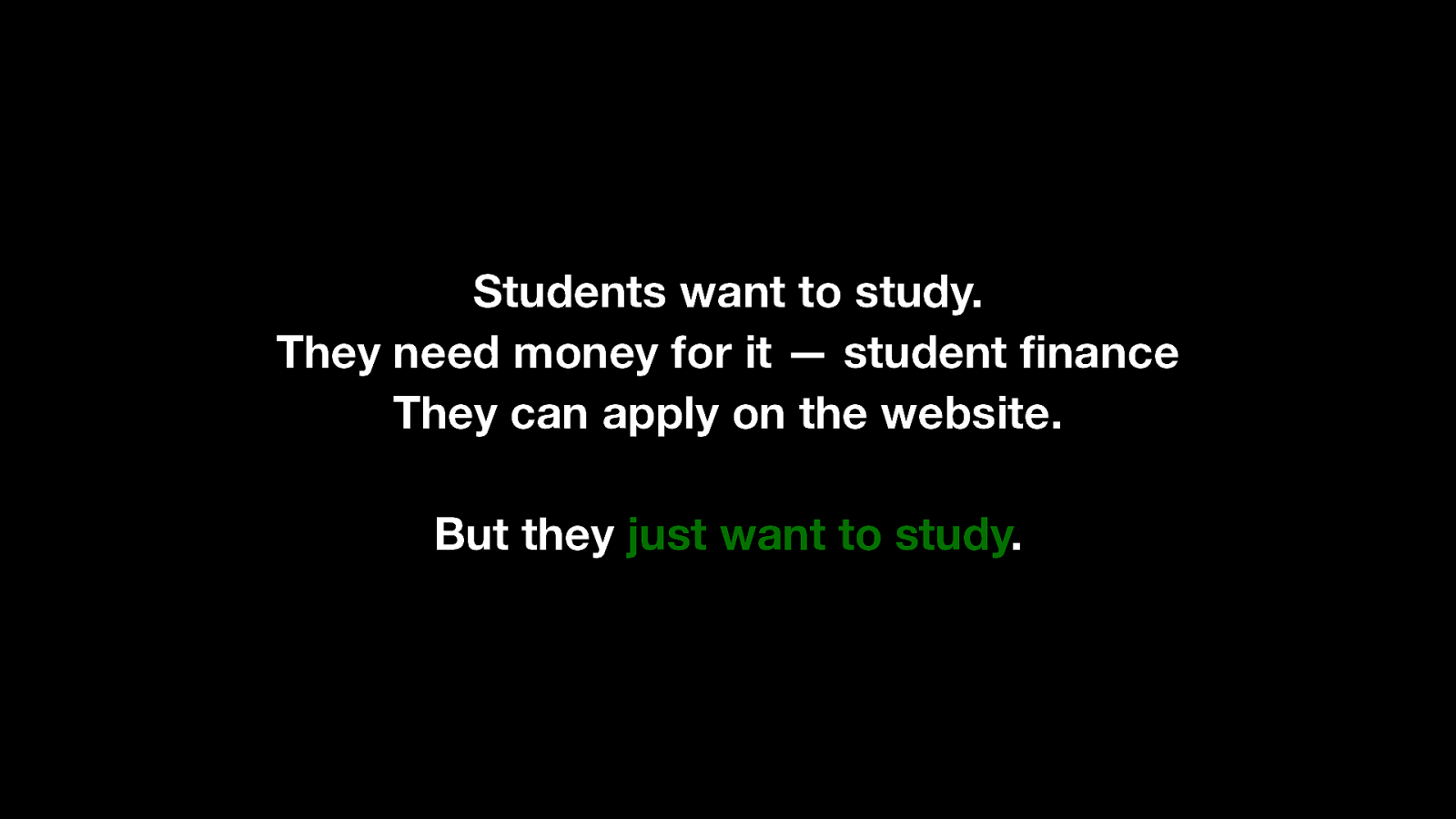
Students want to study. They need money for it — student finance They can apply on the website. But they just want to study. Students want to study. They need money for it and we can provide study finance. They can apply on the website. But in the end they just want to study.
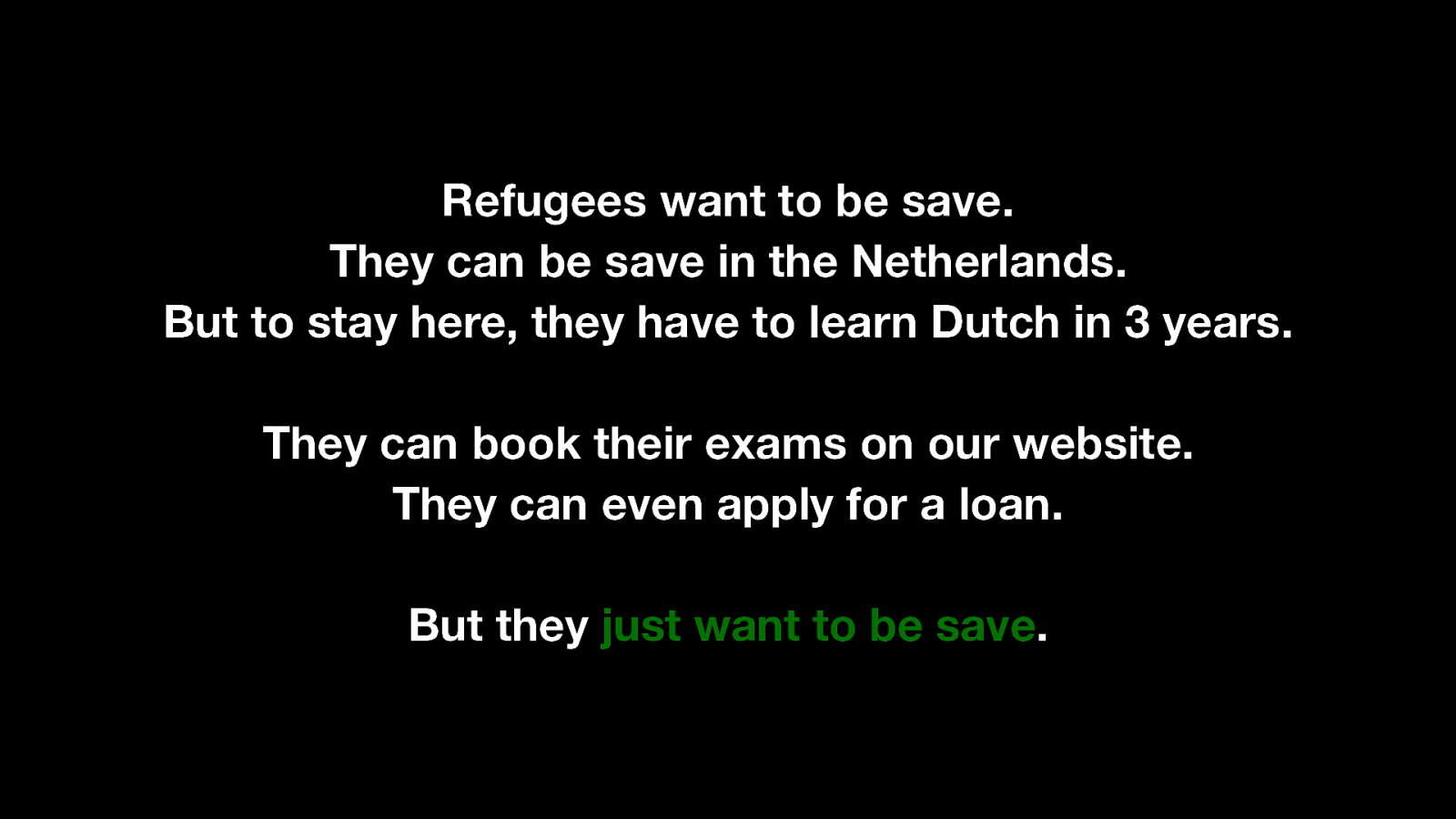
Refugees want to be save. They can be save in the Netherlands. But to stay here, they have to learn Dutch in 3 years. They can book their exams on our website. They can even apply for a loan. But they just want to be save. Or refugees. They want to be safe. They can be save here. But to stay here, they have to learn dutch in 3 years. They can book theirs exams on our website. They can apply for a loan. But in the end… they just wanted to be save.
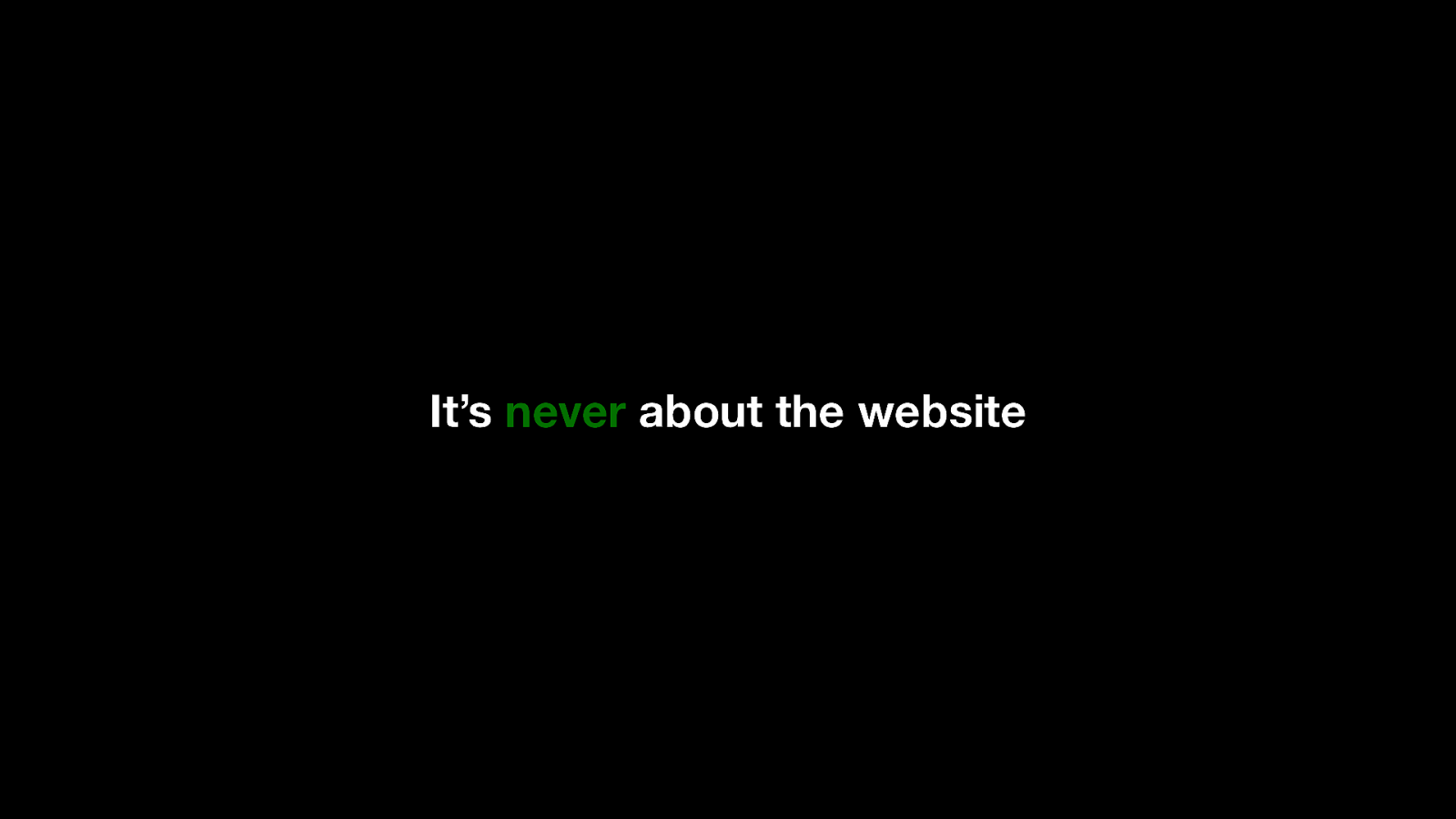
It’s never about the website It’s never about the website. Not for us and it might not be about the website for you and your users.

I started studying again this fall at the Willem de Kooning Academie in Rotterdam.
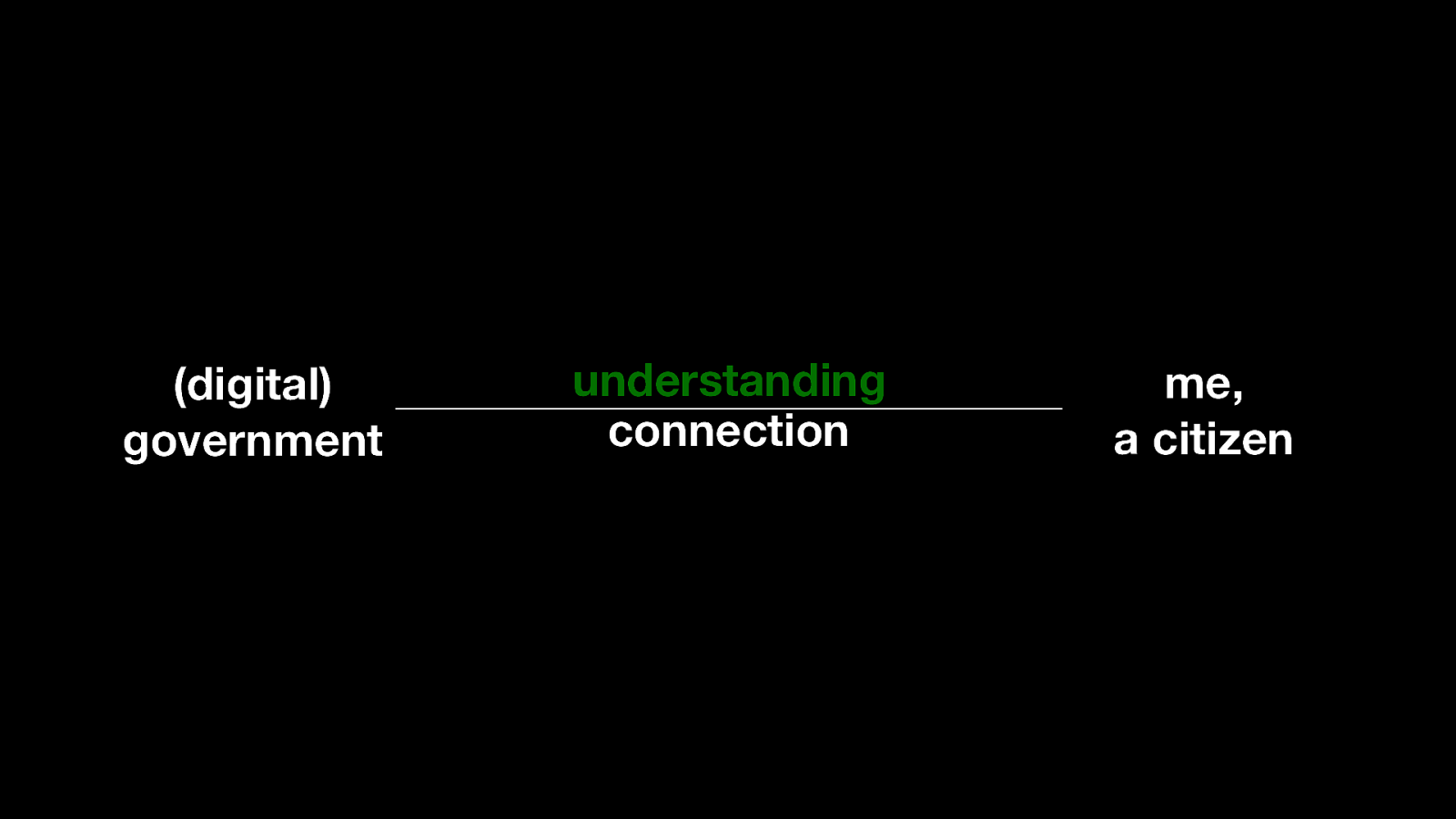
(digital) government understanding connection me, a citizen I am doing a design research study on how the digital government can have an understanding connection with citizens.
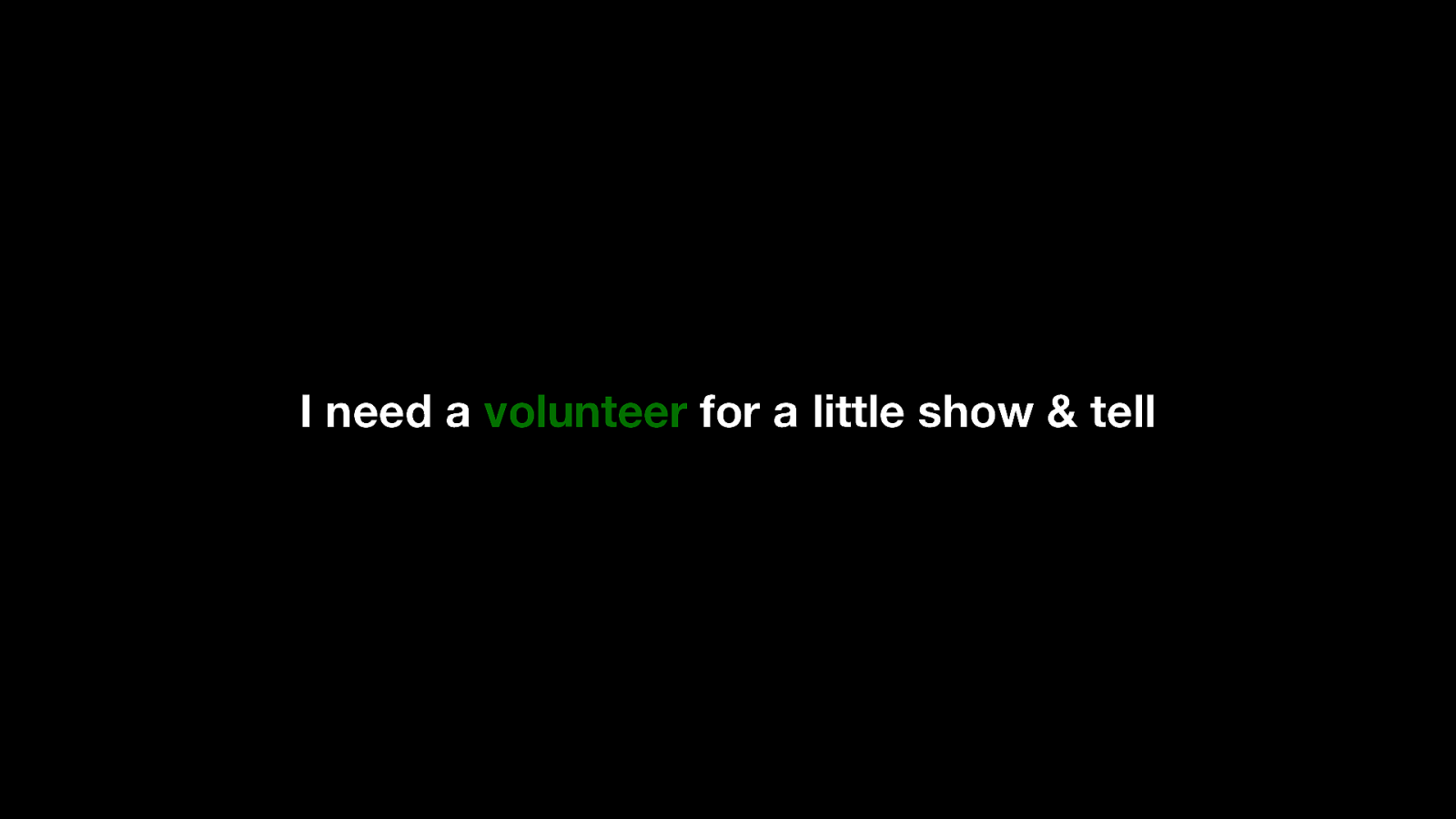
I need a volunteer for a little show & tell

In my first week I asked people in Rotterdam how they felt about the government. I work for the government, I told them. So imagine this rope is our connection, how close would you want to be connected with me. Some of them came really close and were super positive. This exercise is really about intuition. Do you trust me, and how close a connection would you with me?
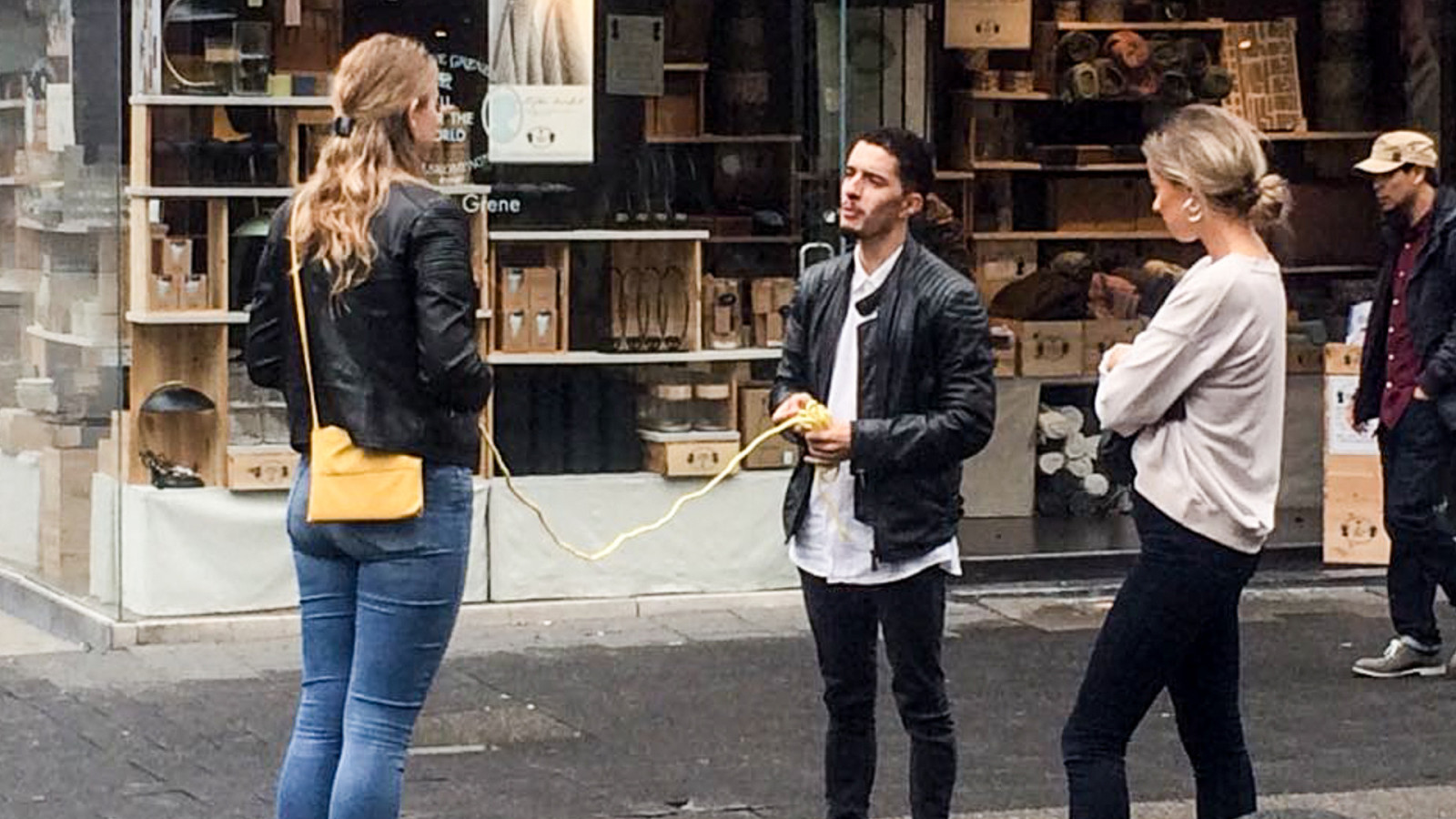
This young man really wanted to stay in control. He did not want to tie the rope around his waist like I did.
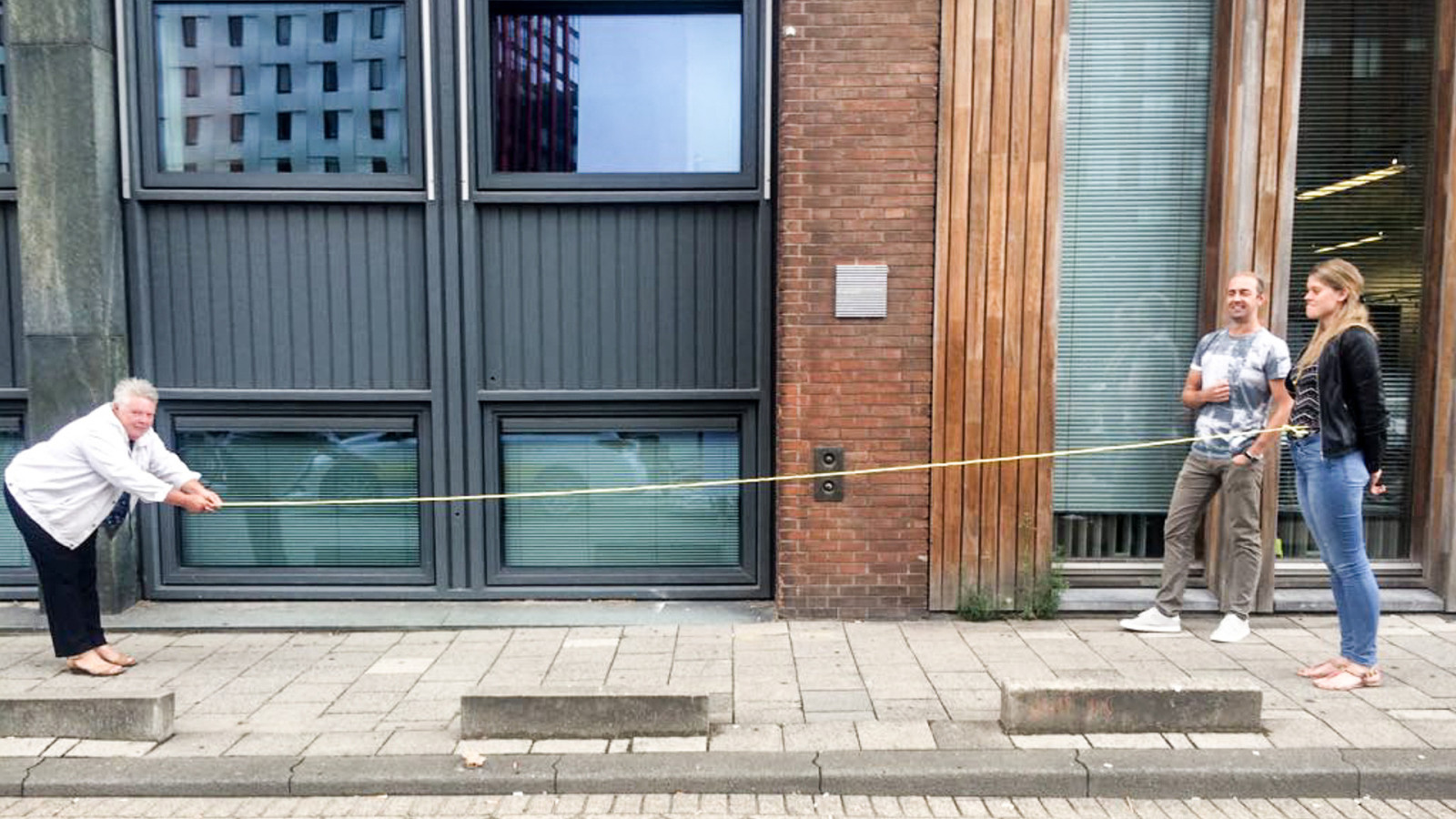
For this lady the rope wasn’t long enough. “Why does everything has to be digital,” she complained. “Your digital government is not going to care for my dad in the morning.”
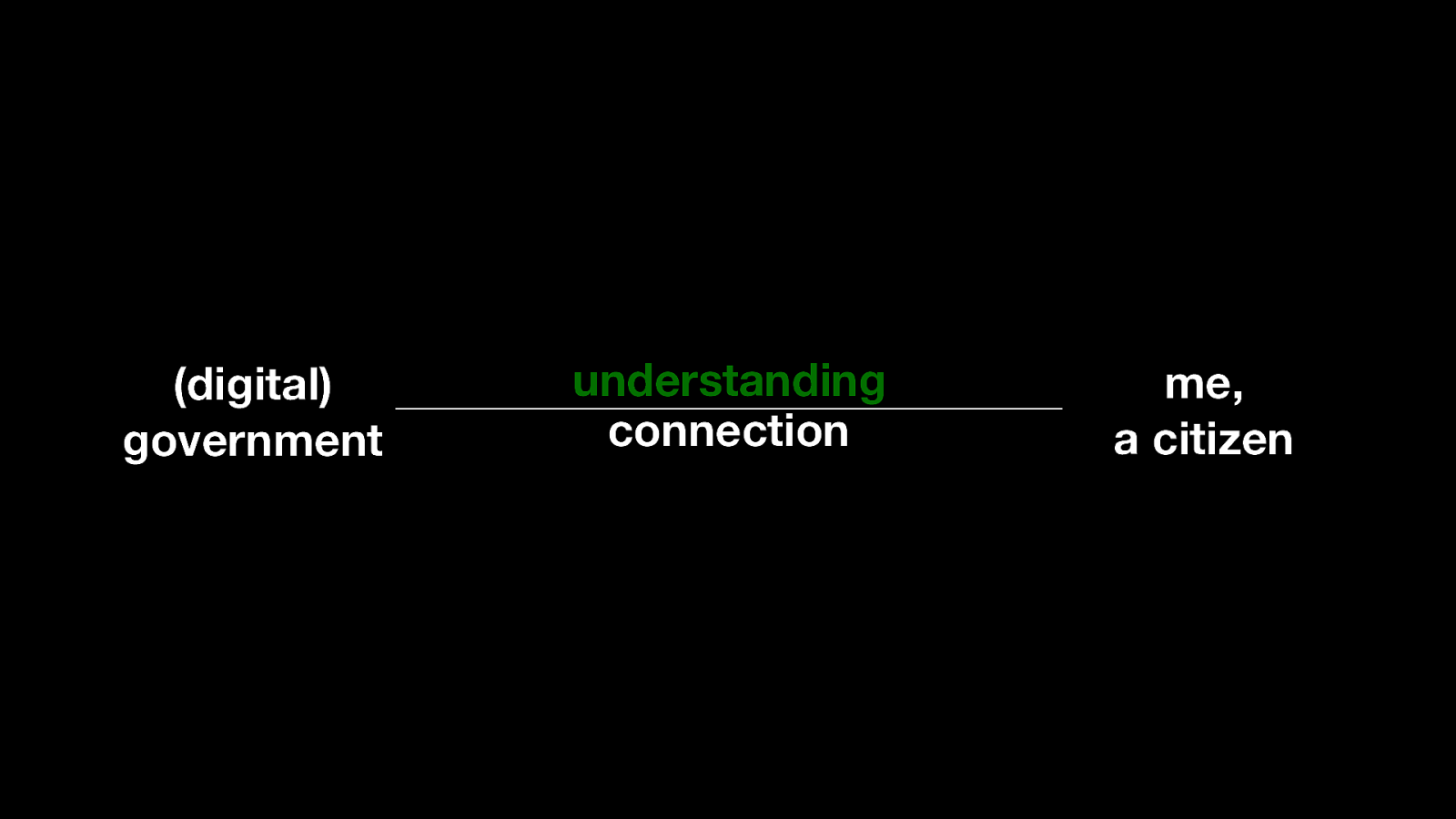
You see it’s about a connection. A relationship. One that, for most users, goes via an interface. And when things are about to become even more digital in the future, these interfaces, will play an even bigger role. Because in a lot of situations people cannot work around these things anymore.
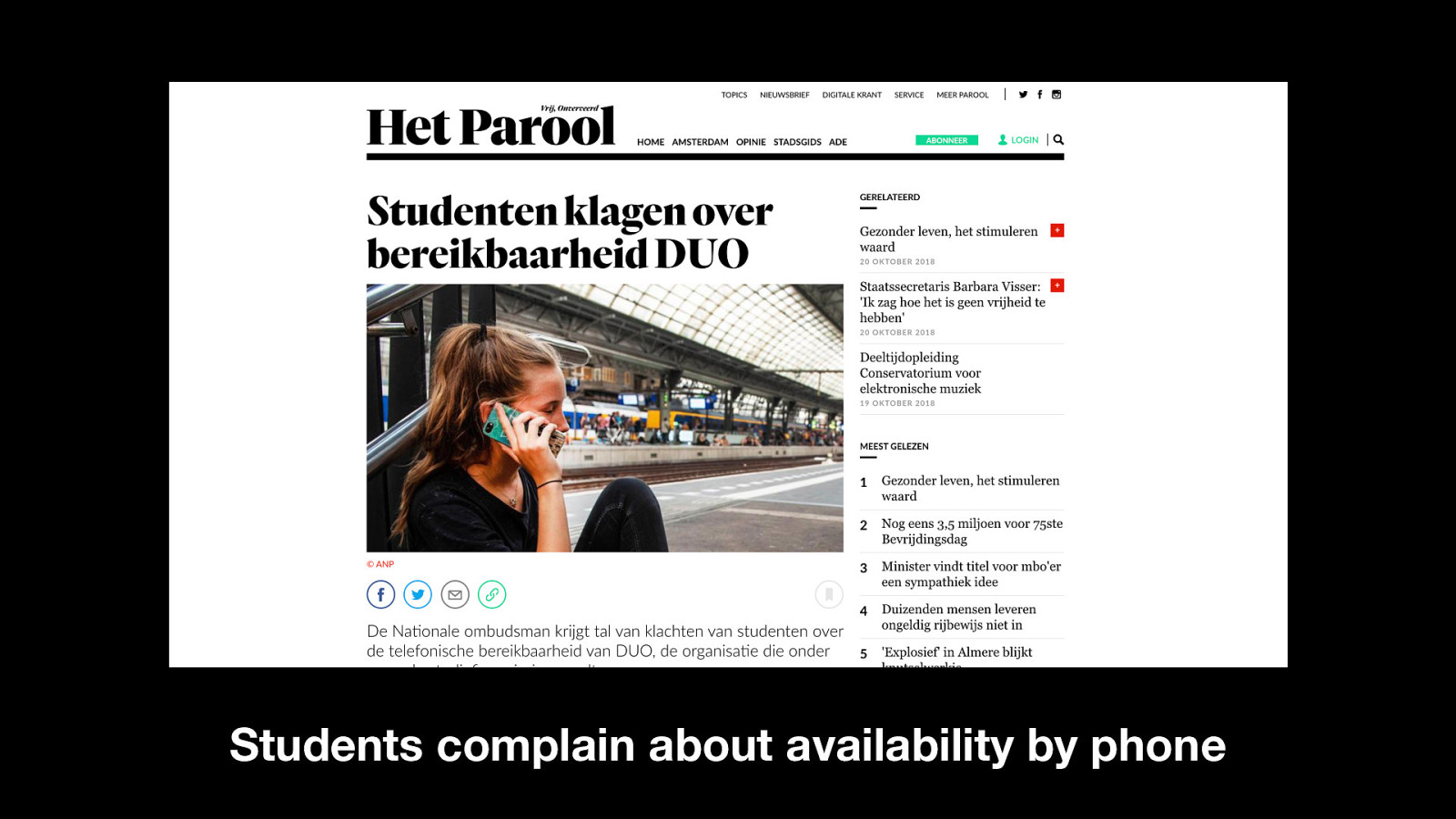
Students complain about availability by phone You cannot always speak to a person or go to the an office to ask for help. We push people to our websites. The past months the Department of Education was in the news because we had a waiting time on our phones of over an hour.
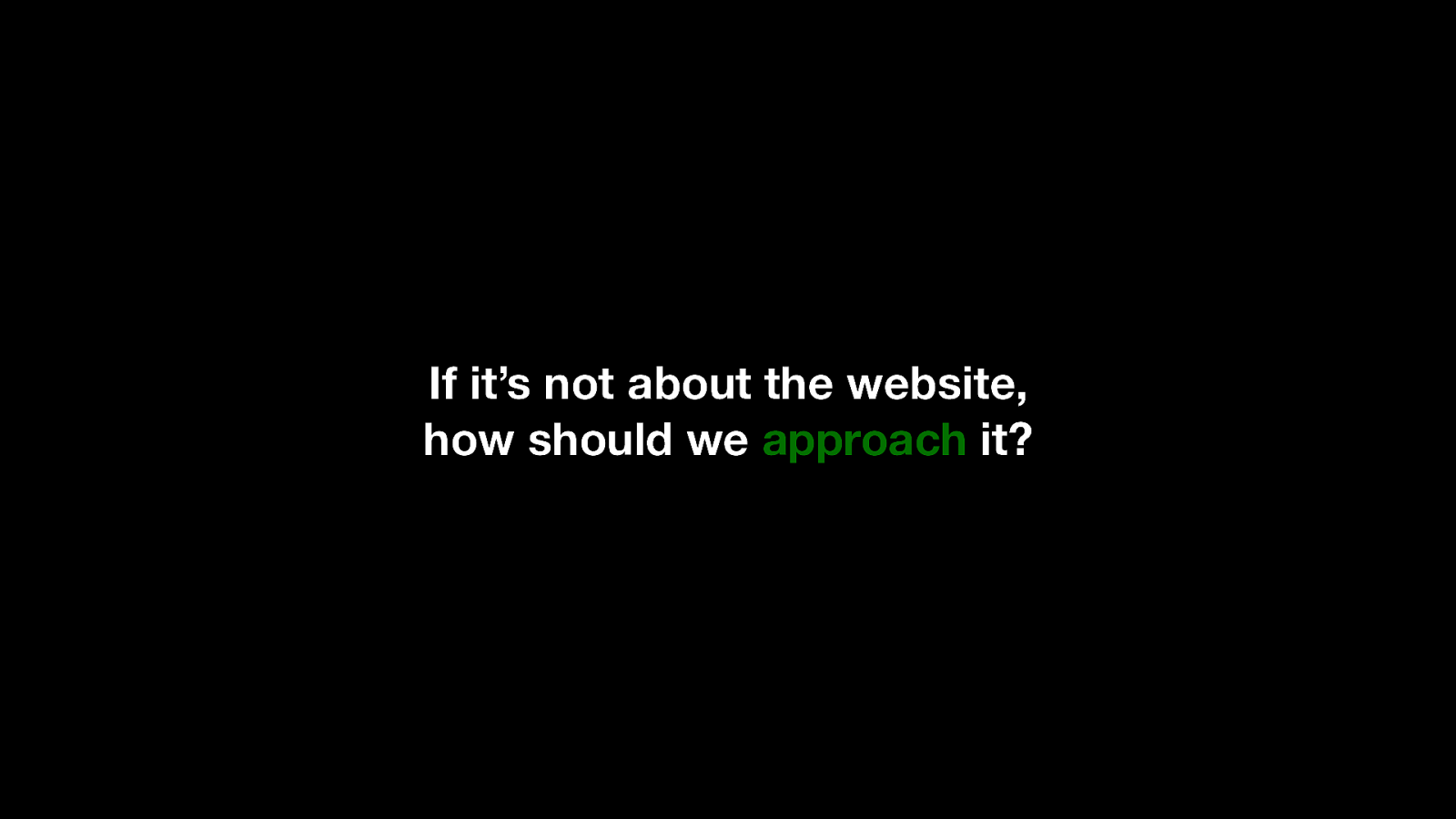
If it’s not about the website, how should we approach it? But if our users can’t call someone and they have to deal with this website, that means that you and I are the next people in line that they have to deal with. Because we make these websites. So how should we as makers approach this?
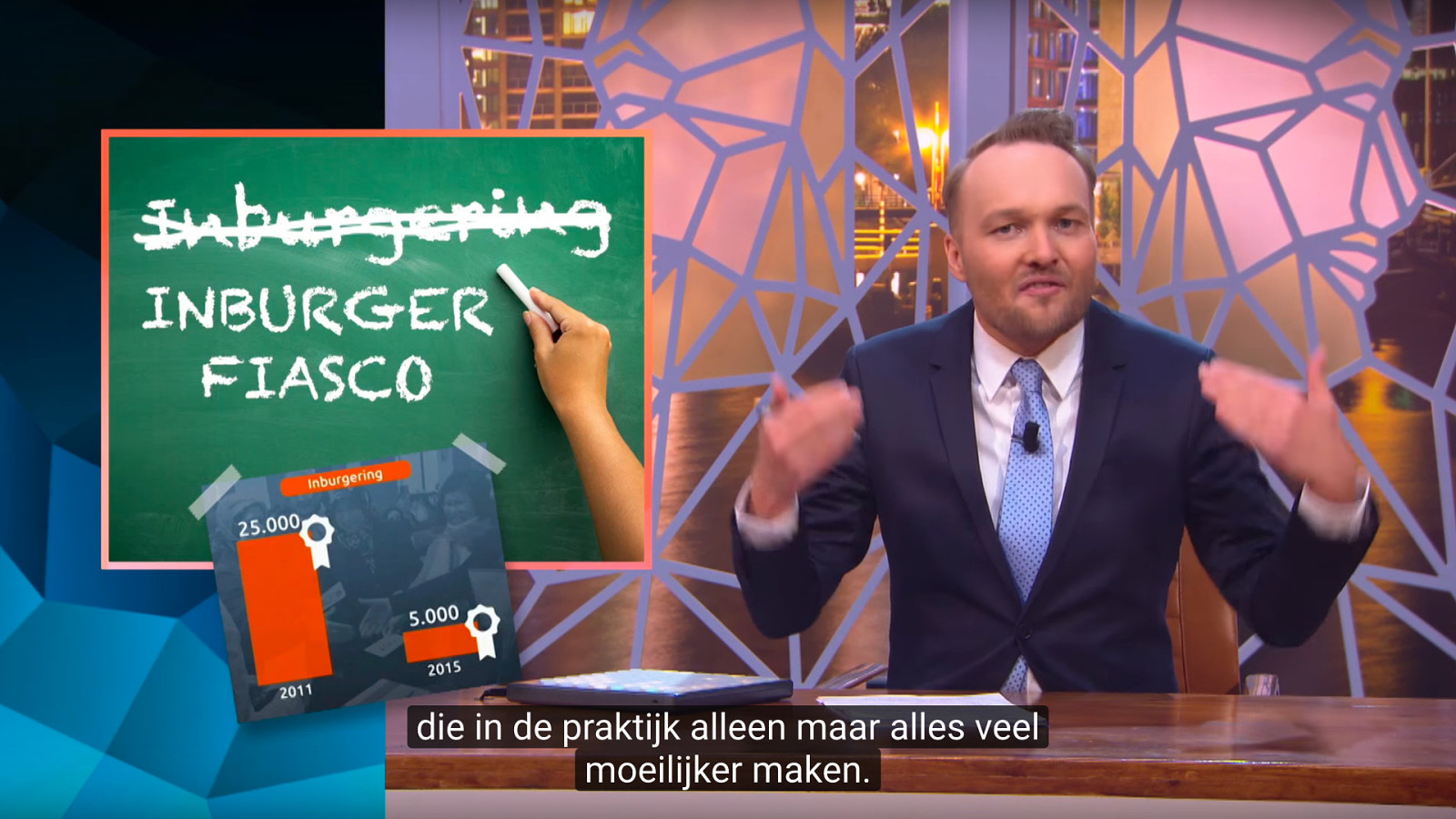
About a year ago my organisation was on national tv in Zondag met Lubach. One of our websites was not so good. Refugees were really struggling to obey the integration law and we weren’t helping them at all.
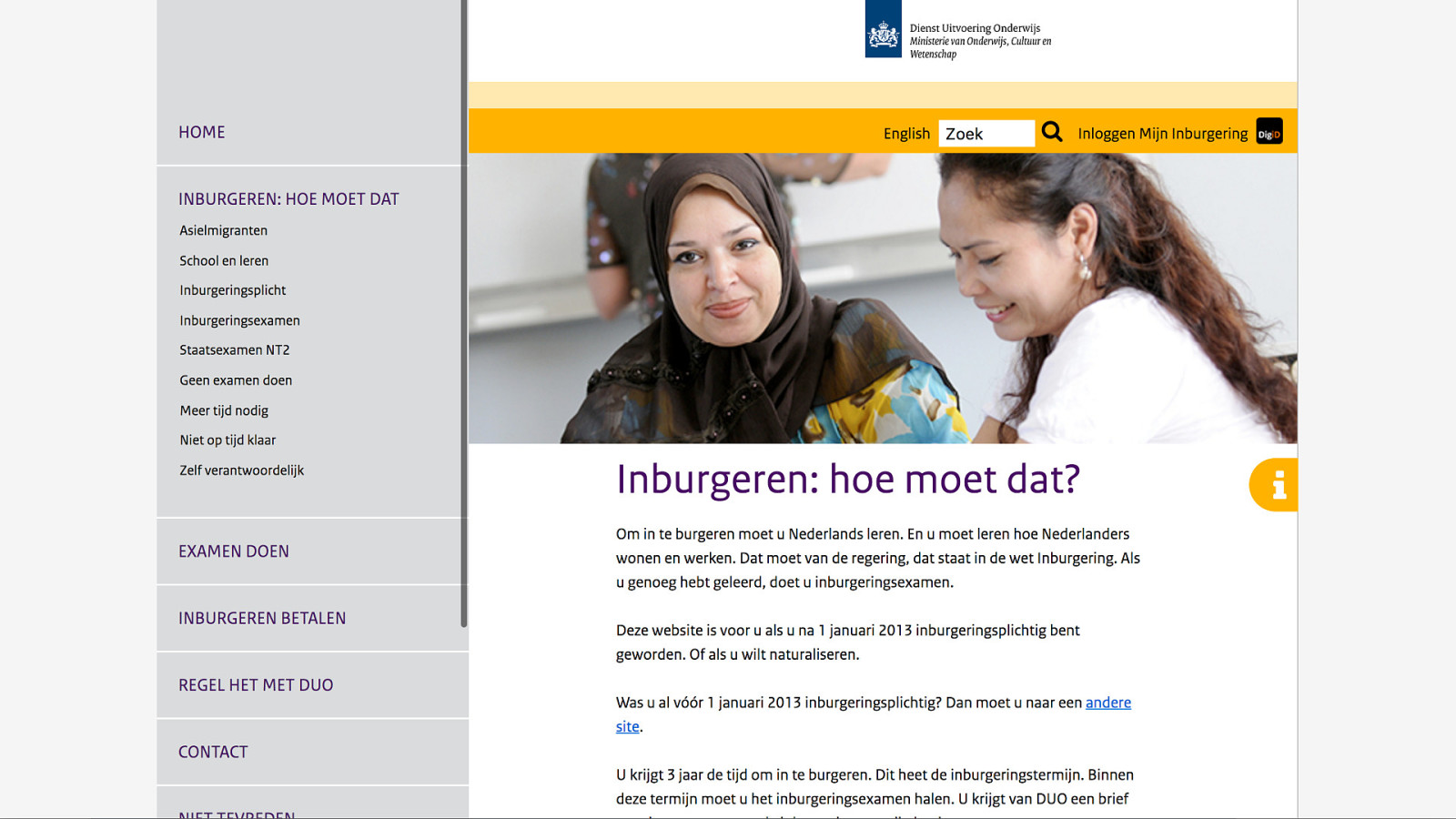
So it landed on my plate do some research. “What is wrong with this website?” Maybe do a usability test or something. At first I hesitated. I didn’t like the subject to be honest.
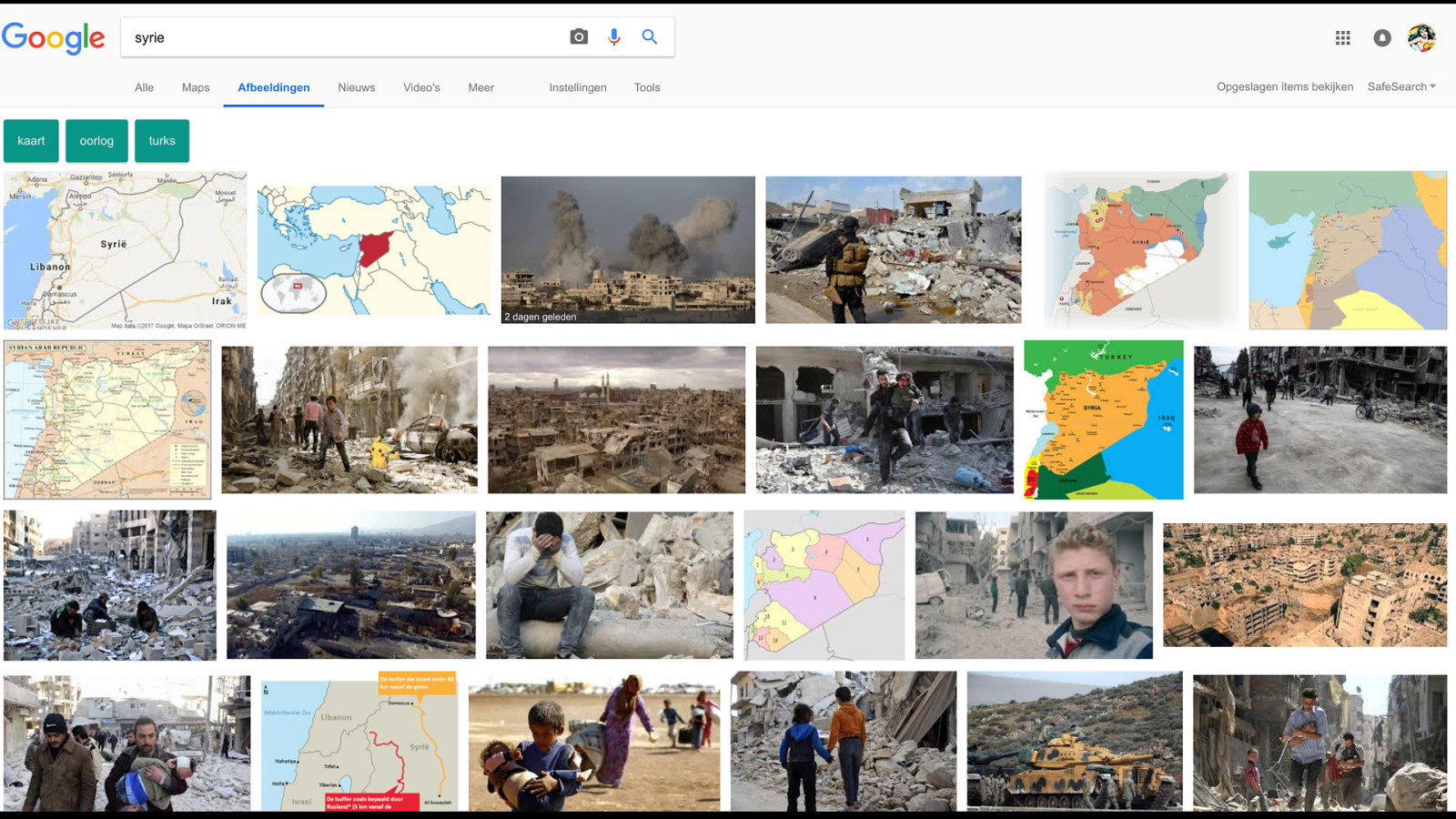
Refugees, that meant the war. I didn’t read the news about Syria, I actually had to google a lot in my first week. But that wasn’t the subject I dreaded the most. Integration, people who are new in the Netherlands, homesickness… it all reminded me a bit too much of when I moved to the Netherlands in 2002.
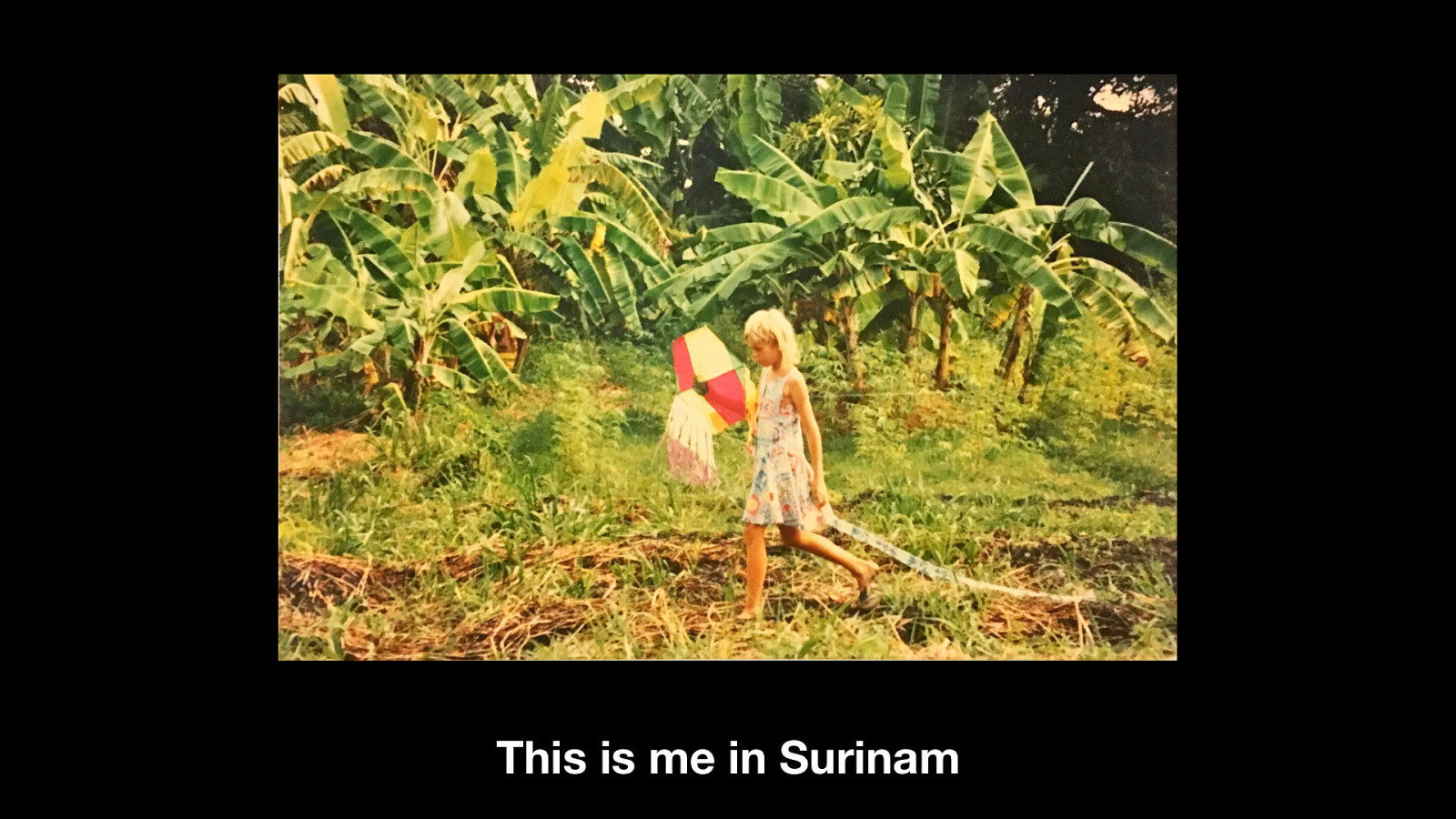
This is me in Surinam You see, I was born and grew up in Surinam, South America. My parents moved here when I was 14 and I hated it.
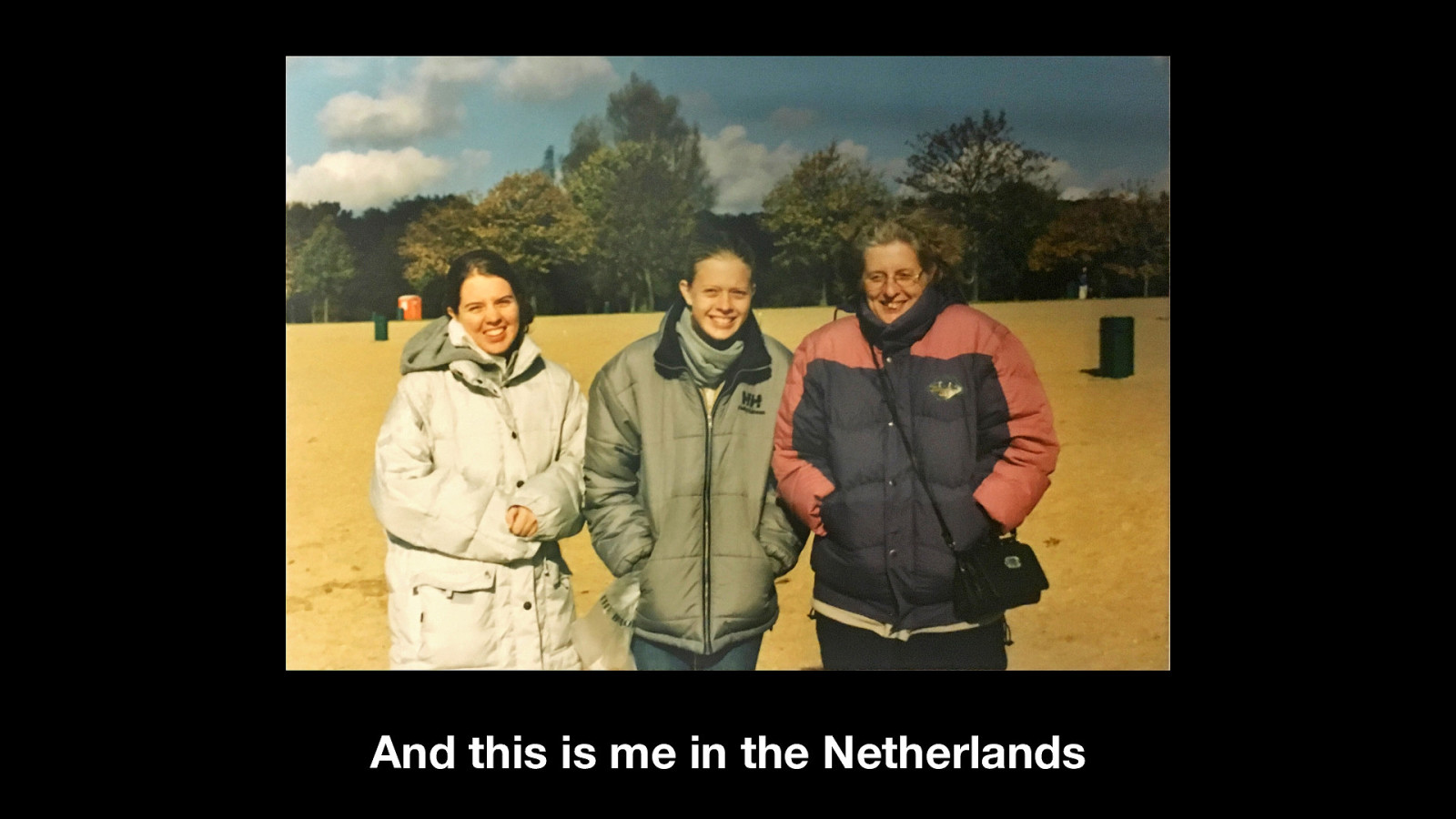
And this is me in the Netherlands It was cold. The first couple of years that I lived here I had no friends, I did not know how to behave, it didn’t know the dutch culture. I didn’t belong here and I missed my home so much. It was actually not until I met my husband that I felt more at home here.
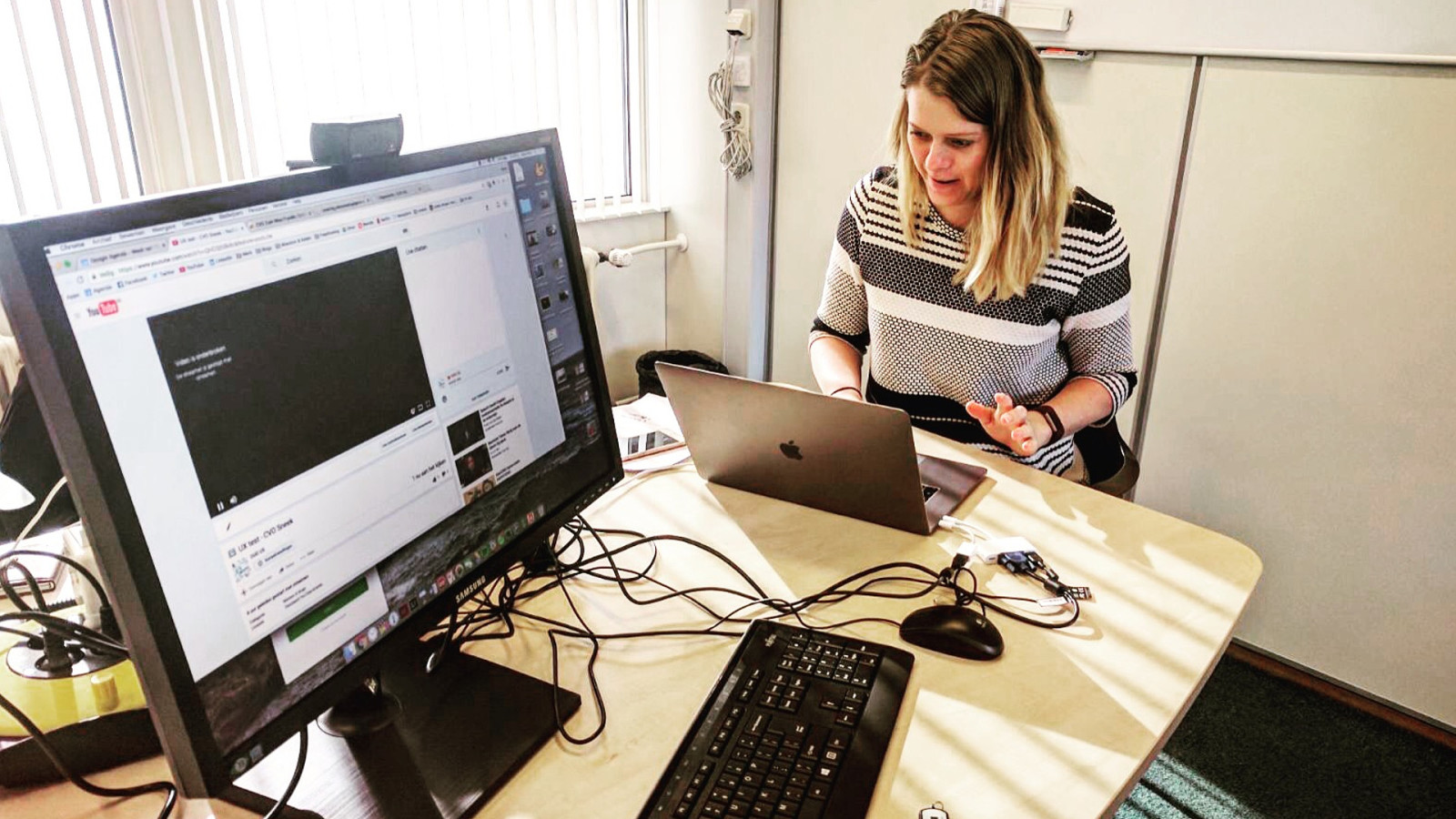
However, a job is a job. So I took my usability lab (called my laptop) and went off to do some research. Never before had I met such good users. They tried so hard to do the right thing and they were really shy to show me how they used our website.
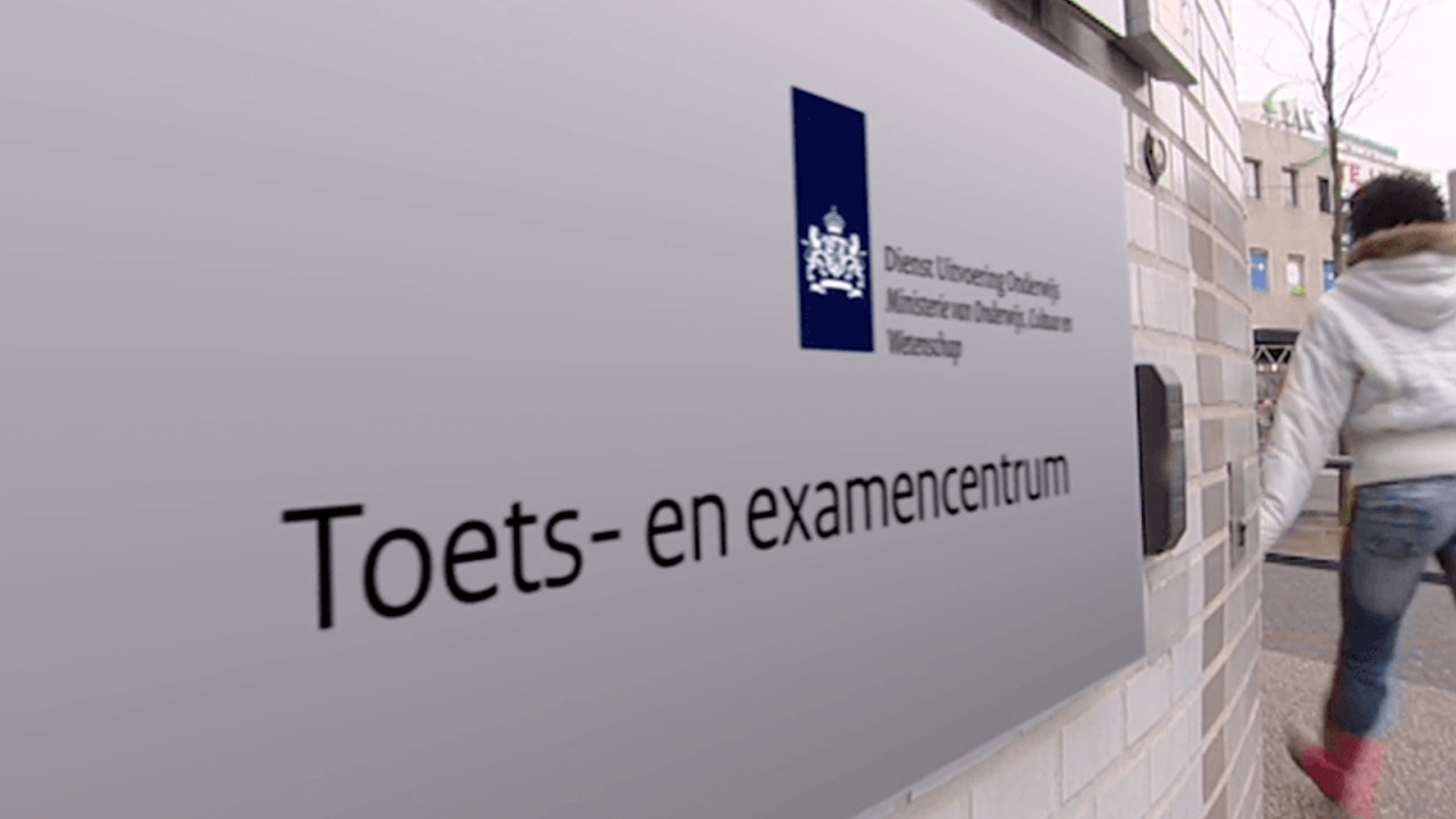
We decide whether or not they pass their integration exams. And if you don’t pass your exams, your residence permit might not be extended. So of course they were not going to give me critical feedback. I needed to find a new approach. An approach to discover and to create a real connection, one where they could trust me. I turned to a friend of mine who organised a club for refugees back in 2015.
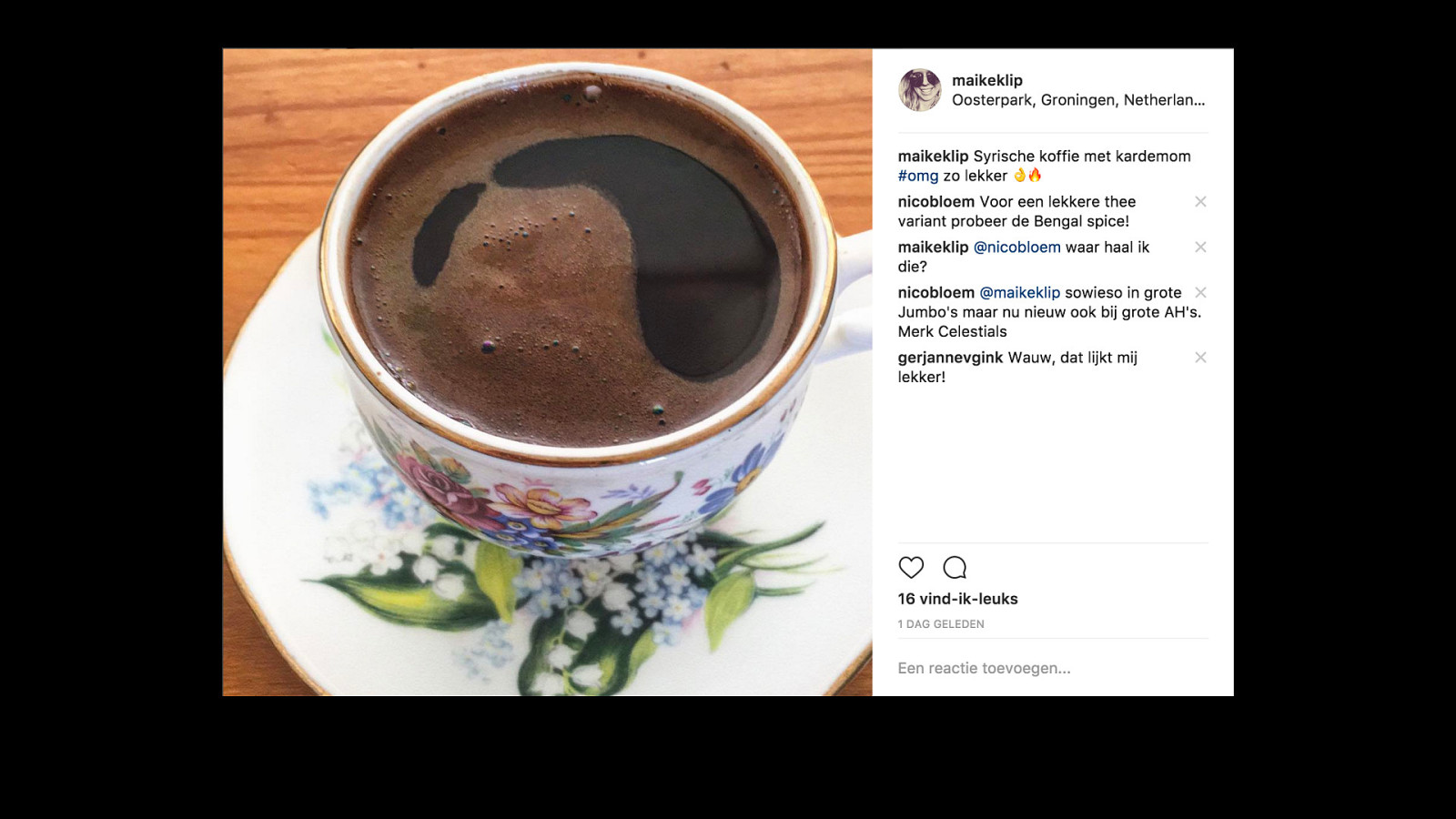
I asked him if he knew a refugee who would want to drink a cup of coffee with me. Not me, researcher at DUO, but me, Maike. So he made me join a food club in my neighbourhood.
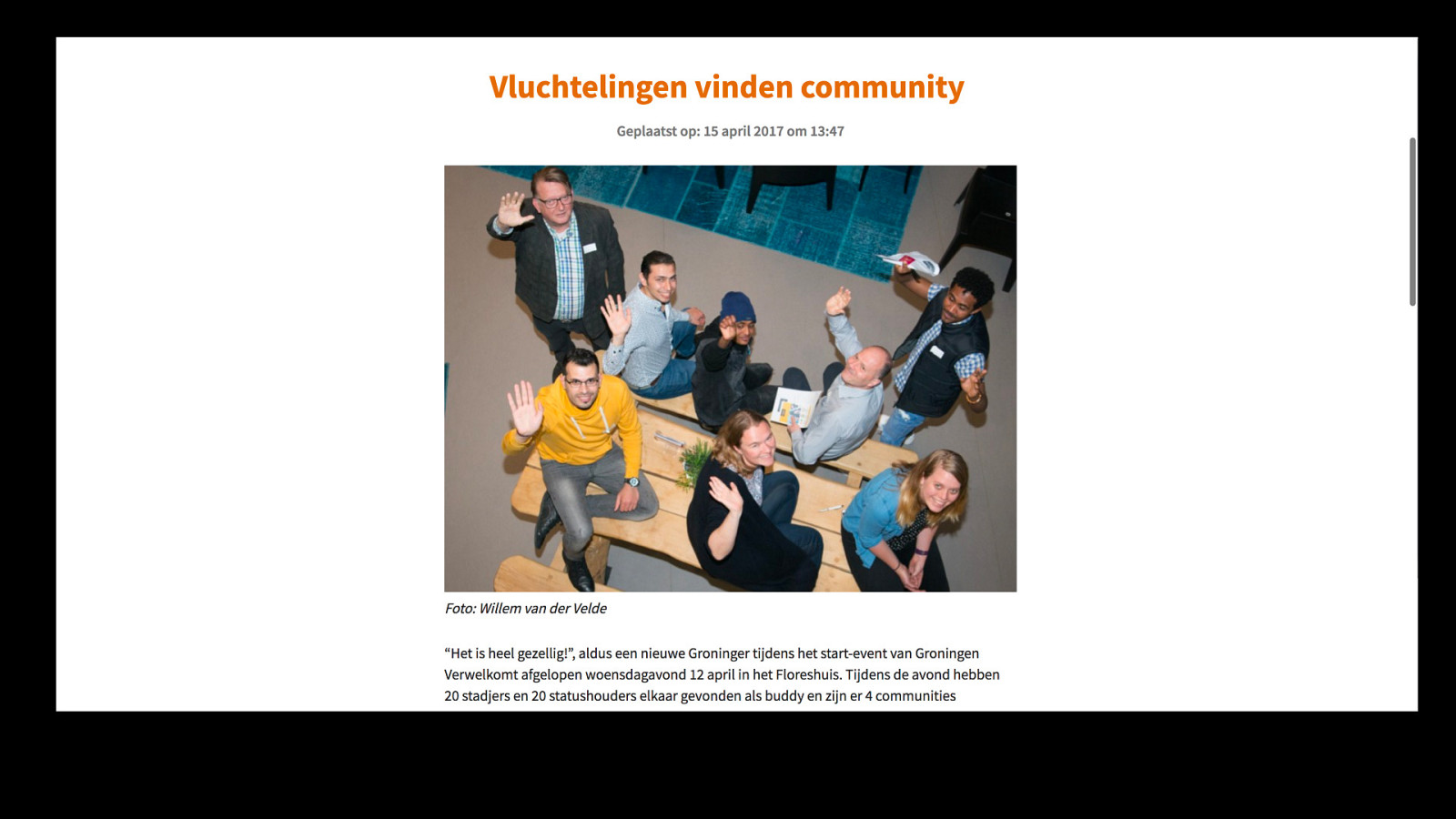
The first time I was anxious. I was aware of the cultural differences and suddenly i didn’t know how to act. I felt vulnerable. I did not understand the others, we had to use Google translate on our phones to communicate. This was way out of my comfort zone.
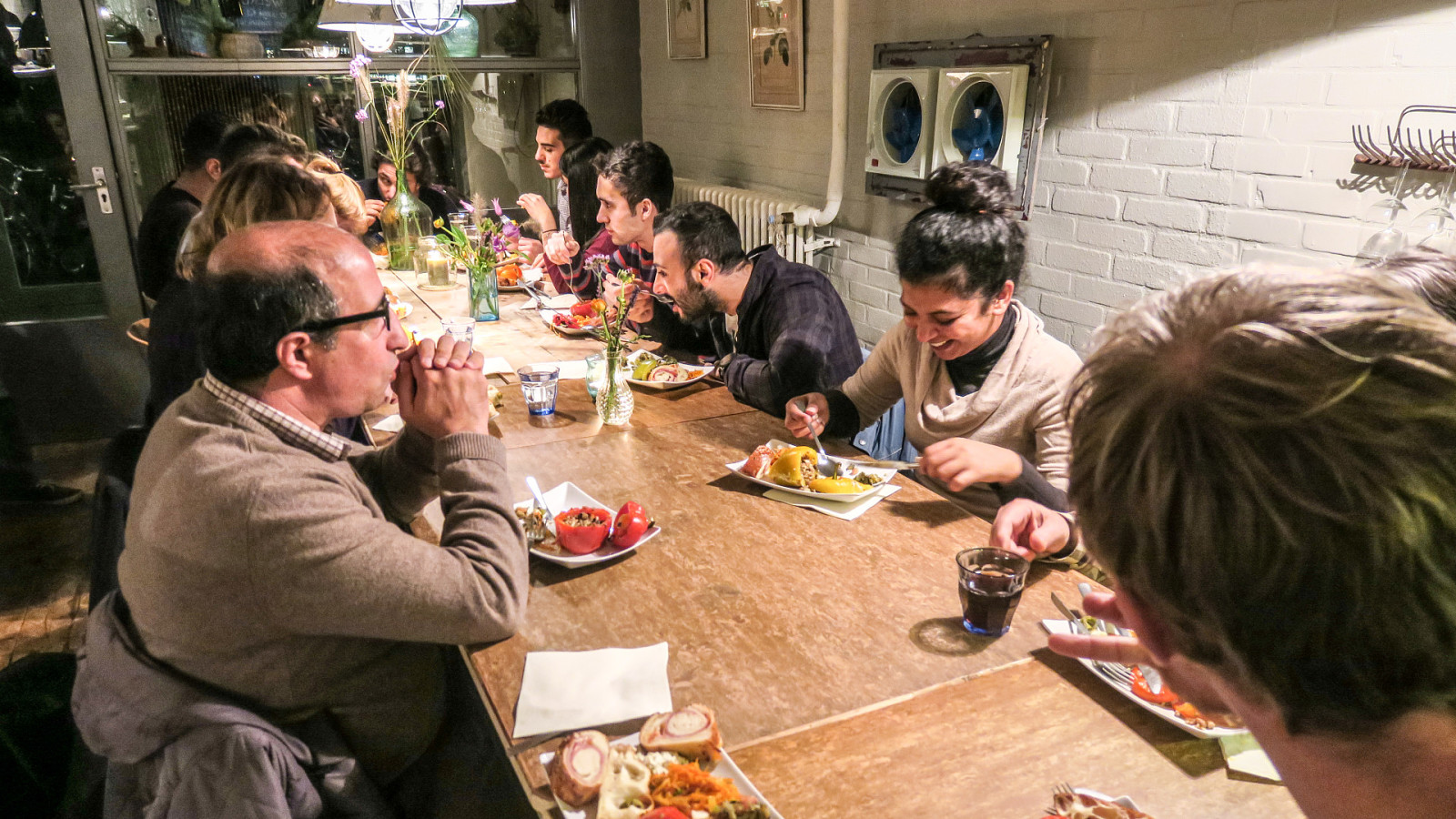
I got to know more people. We organised more diners. I went to the flee market on kings day with my neighbour Zoia. We drank free coffee at Ikea. My husband Jasper and I went to dinner at Mohamad’s house who cooked a great meal for us whilst on the phone with his mom in syria who told him how to cook the food for us, his new dutch friends. We went to the park, we hang out in bars, we became friends.
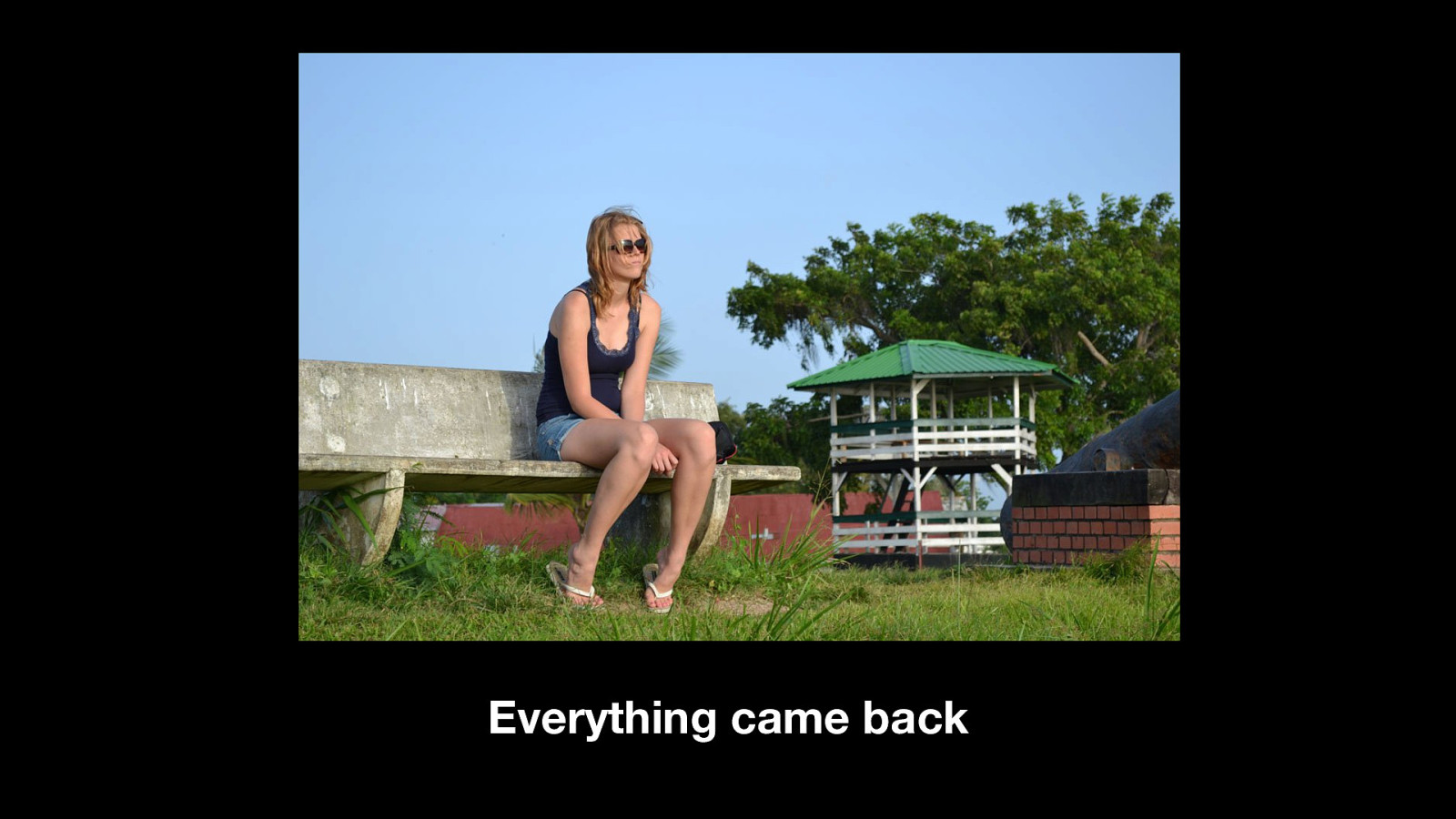
Everything came back Suddenly everything from my own experiences came back. I started sharing stories from suriname, things I had not shared with my dutch friends. When there were no dutch people around, my surinamese accent came back and my new friends didn’t notice so much. They didn’t laugh when I said something strange. And feelings that I myself had pushed down came rushing back as I missed my home country so much.
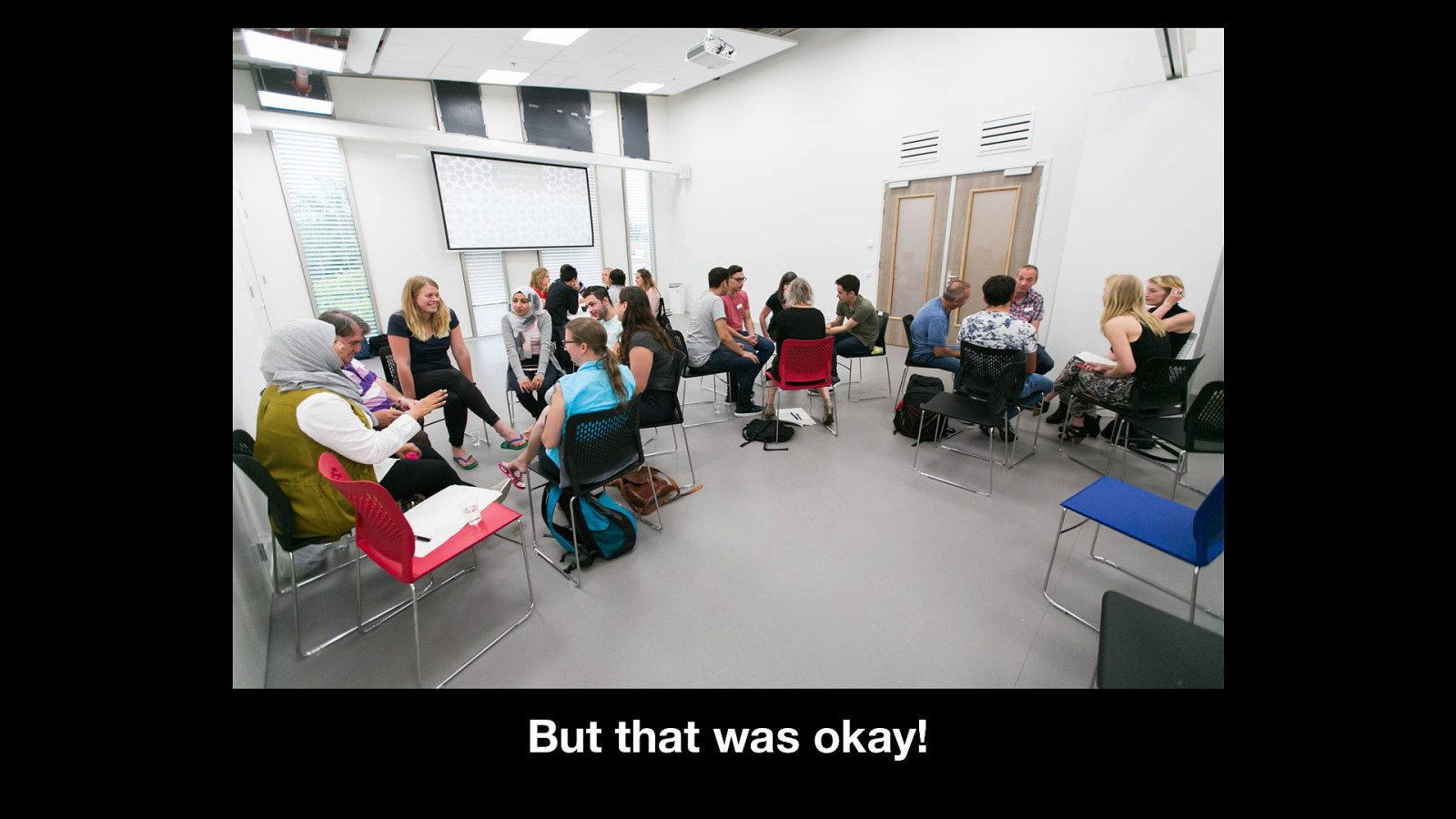
But that was okay! But how wonderful that I was able to share this with new friends. In every group of friends you have this person who is really good with cars. When something is wrong, you call him, he fixes it, you buy him a beer. You all have someone in mind. If you don’t it’s you they’re calling. 😉 And how great when you have a friend who is good at bureaucracy. Who ya gonna call? —> me.
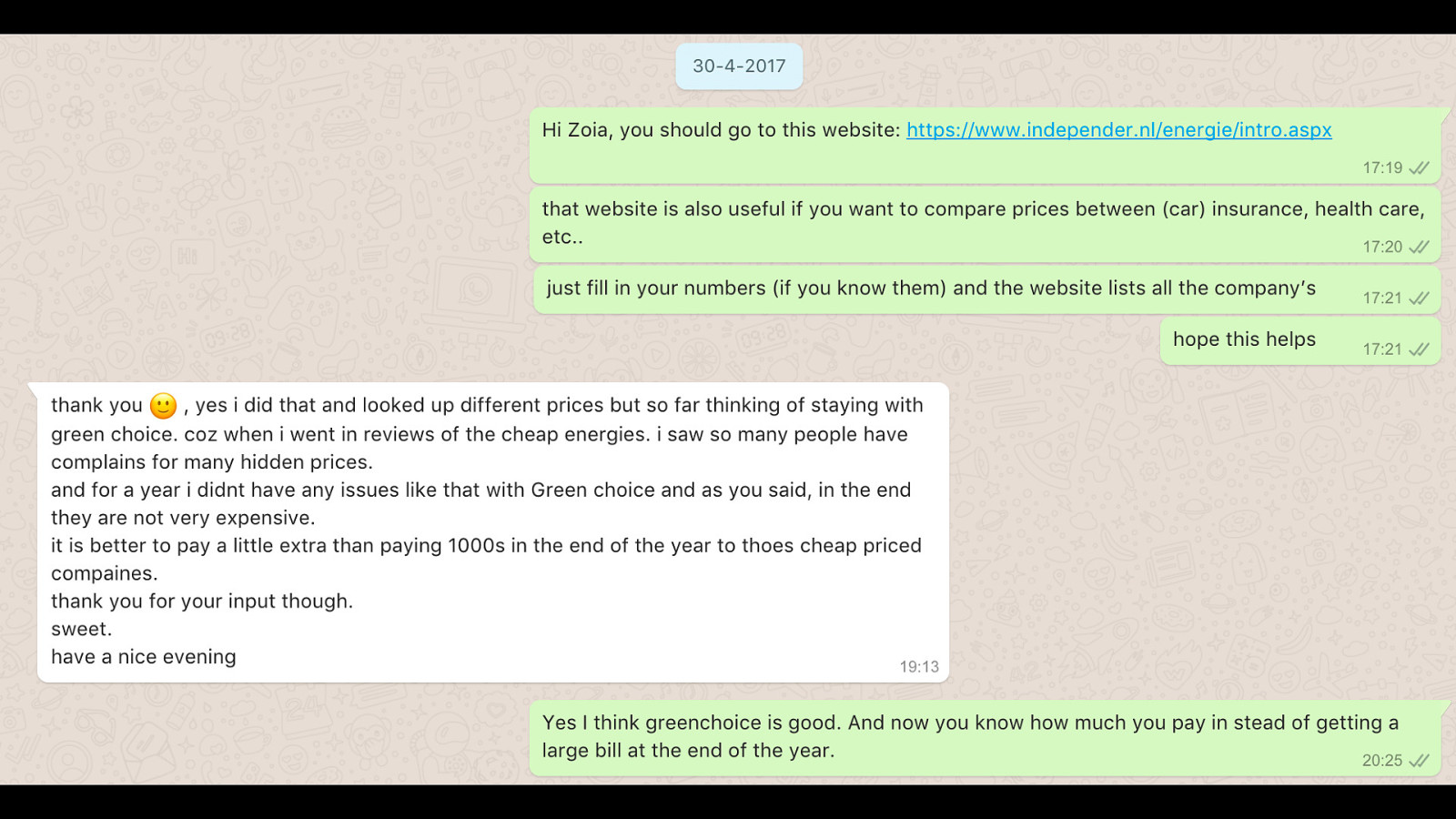
The first question I got wasn’t even related with what we do, it was about an energy bill.
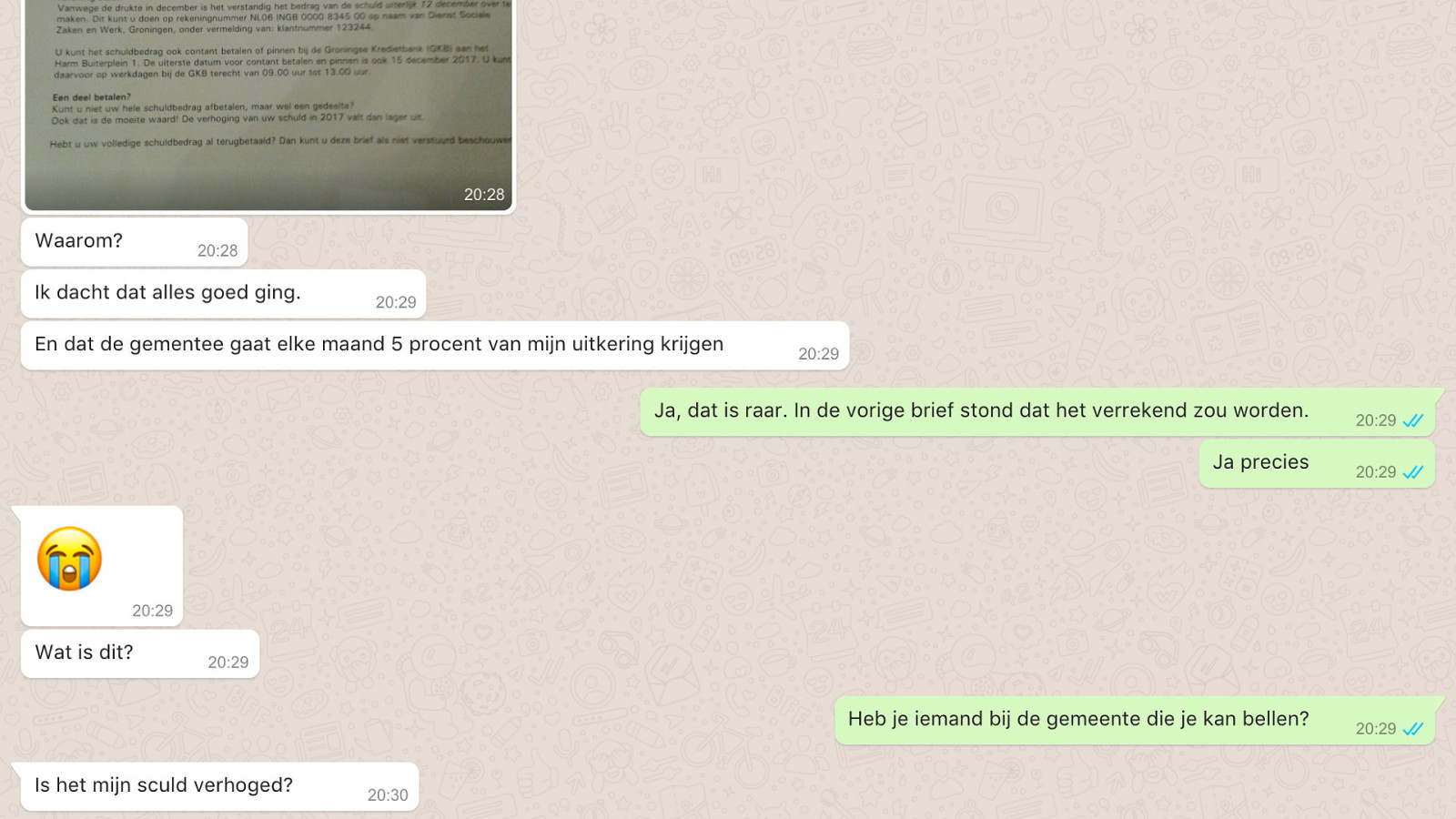
Questions came pouring in. In the evenings and during the weekends my neighbours came with letters they didn’t understand, things they had to deal with the local government, their social benefit, rent allowance, student loans, you name it, they struggled with it.
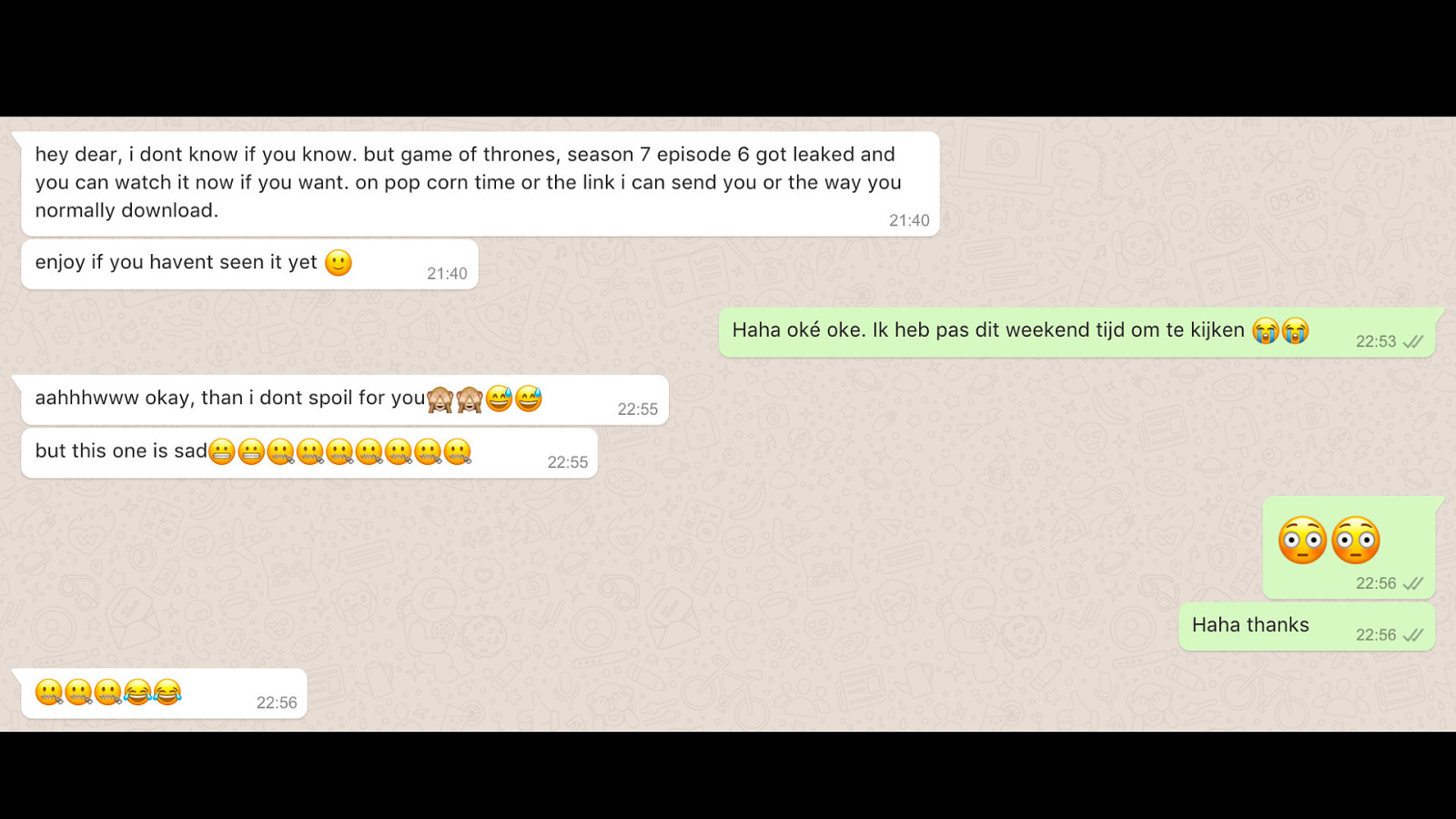
Actually, this one is about Game of Thrones. Never mind. Because we were friends I cared and I wanted to fix it with them. And I got so frustrated with the bureaucracy we have. And there’s something about real life trying to deal with your shit instead of recreating the situation in a user research lab. You know, when it’s a friend who has a problem, I feel it too. Maybe more than just someone who visited my ux lab.
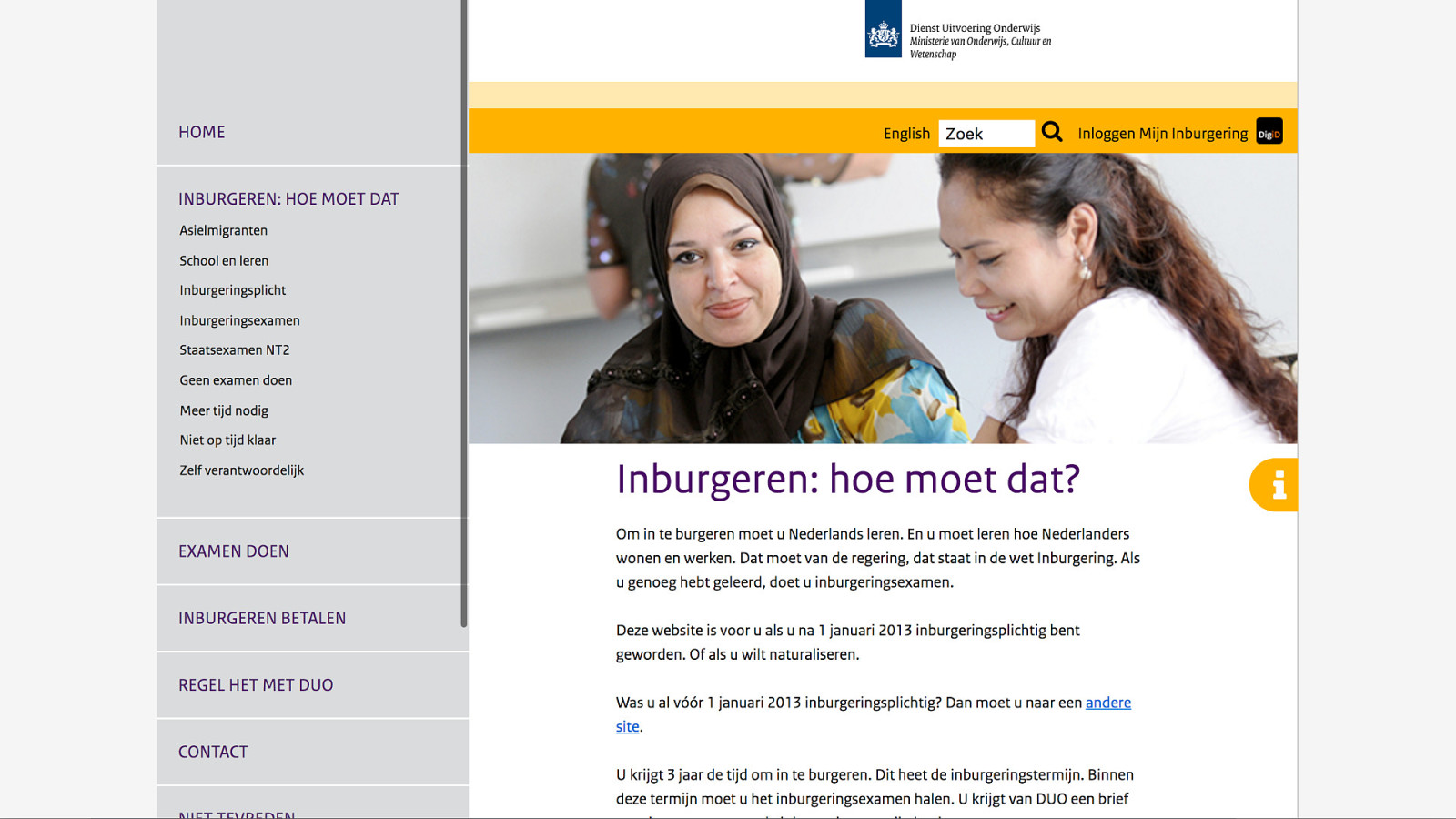
Back to my original question: what is wrong with the website? Oh boy… The problem is so much bigger than just the website. It’s about people who lost all control over their life. They’re here and they’re new in this strange country.
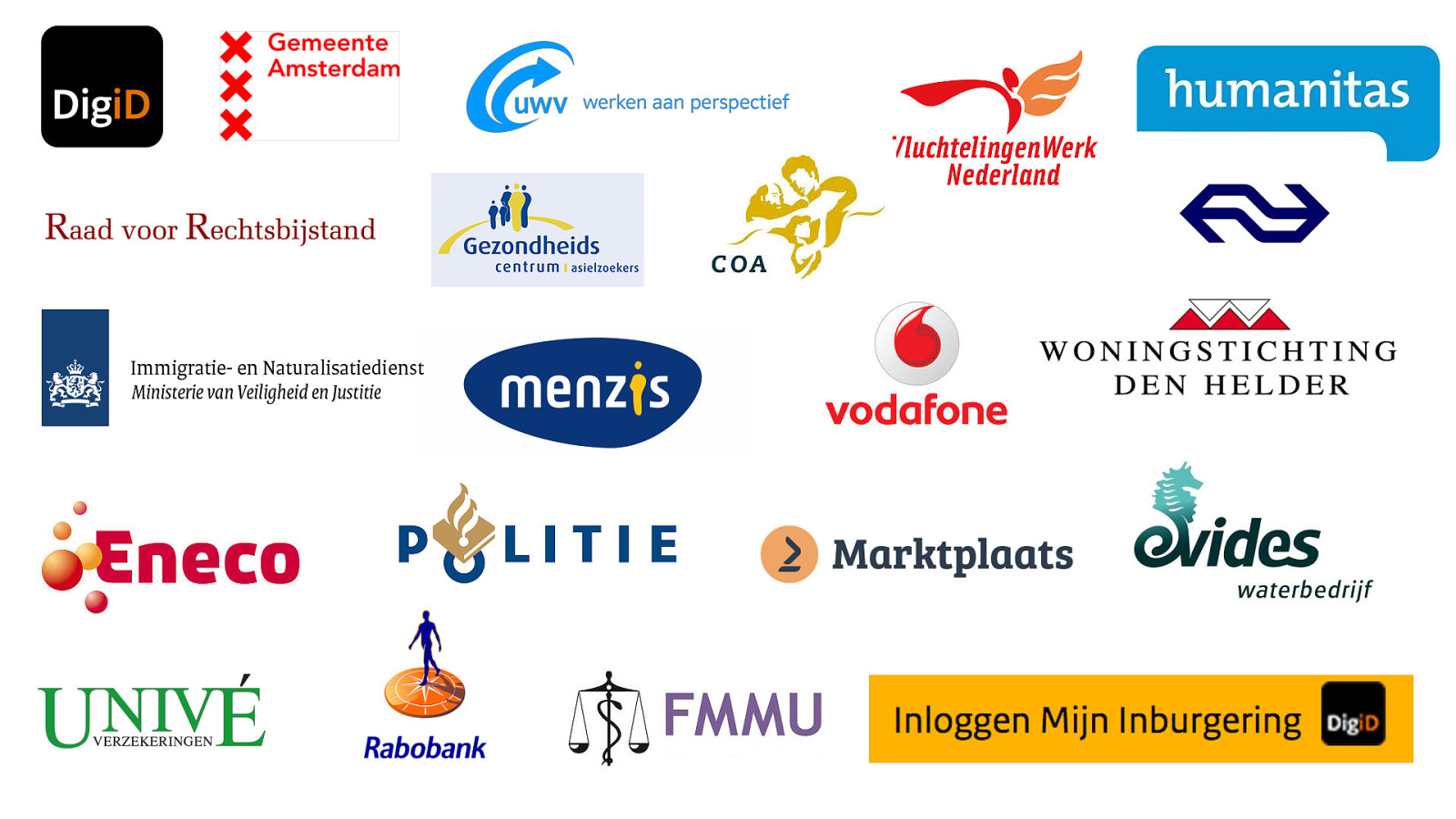
We are not the only organisation that needs something from them. They have over 20 websites where they can go to or log in to organise their life. But they are lost. I wouldn’t have figured this out if it wasn’t for my new friends who trusted me and shared their lives with me. And asked me to help them dealing with all these shenanigans.
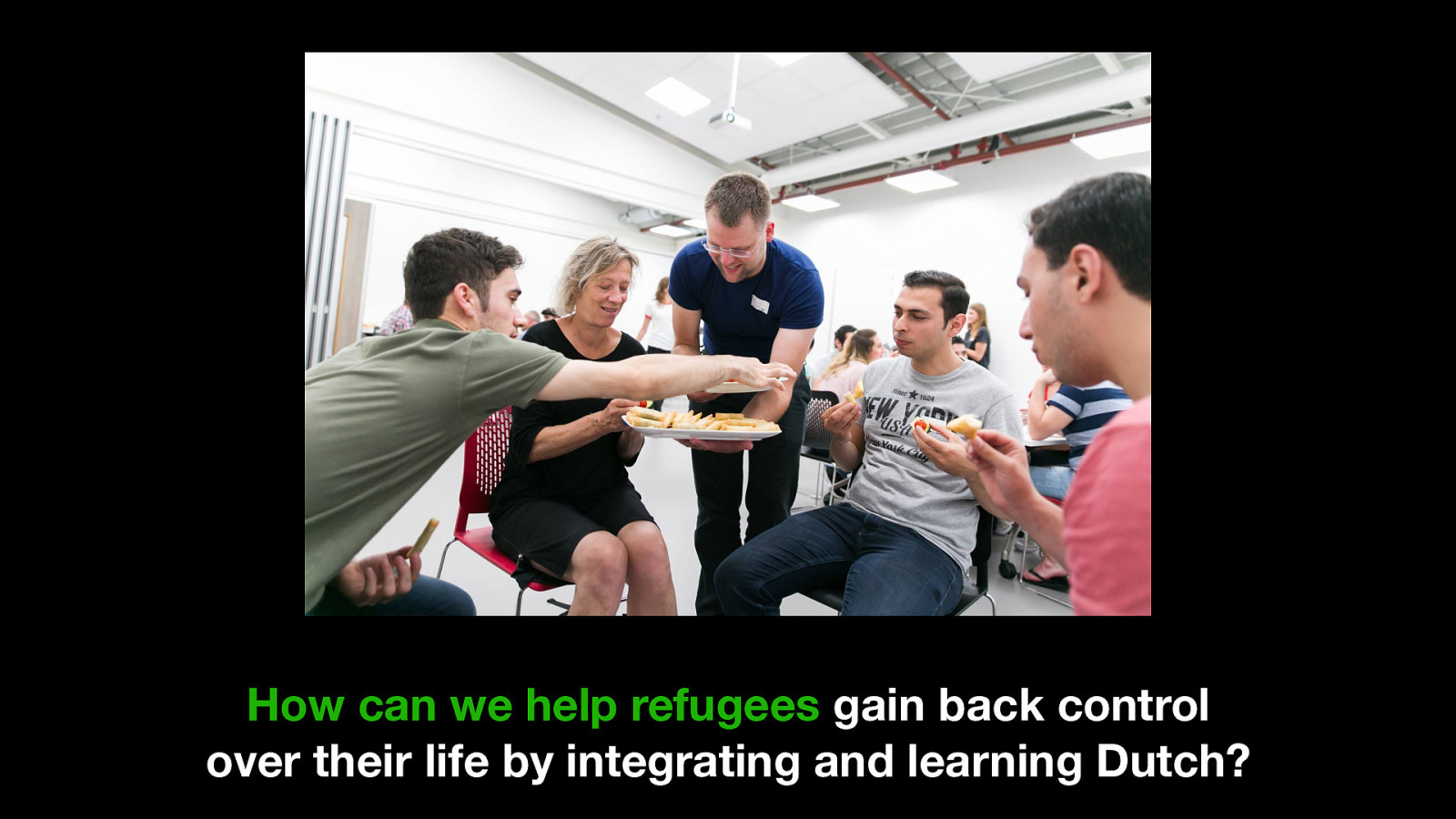
How can we help refugees gain back control over their life by integrating and learning Dutch? So a good design challenge for us is not how can we ‘nudge’ people to log in or how can we improve the usability of the website? It should be: how can we help people gain back control over their life by integrating and learning Dutch? And how should our digital service be if we want to achieve that? How should we connect with them?
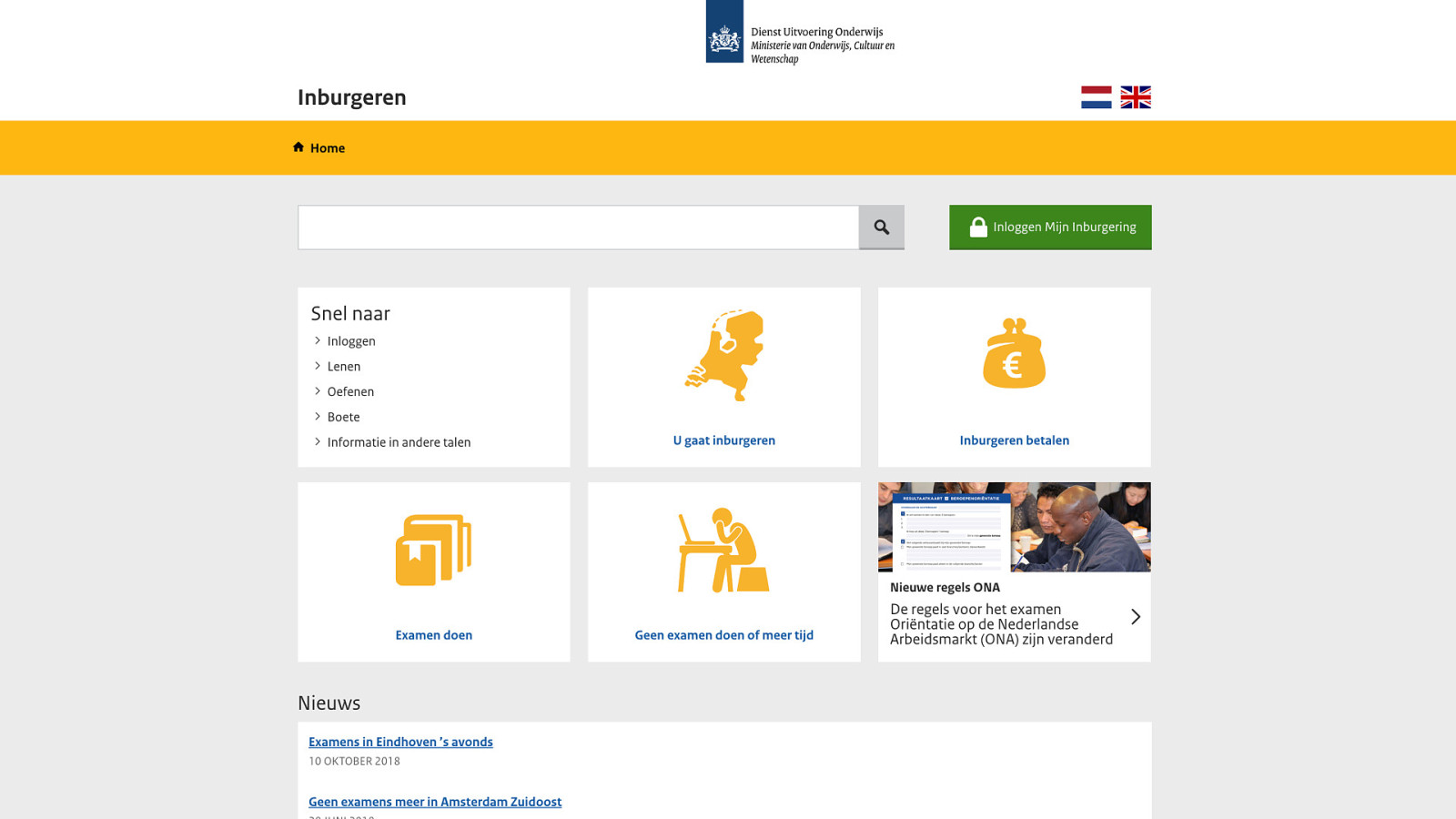
In the end we did make a new and improved website. And we did solve some problems. Of course there is so much more to say about the service that we design, but I believe that it starts with empathy. With making a real human connection.
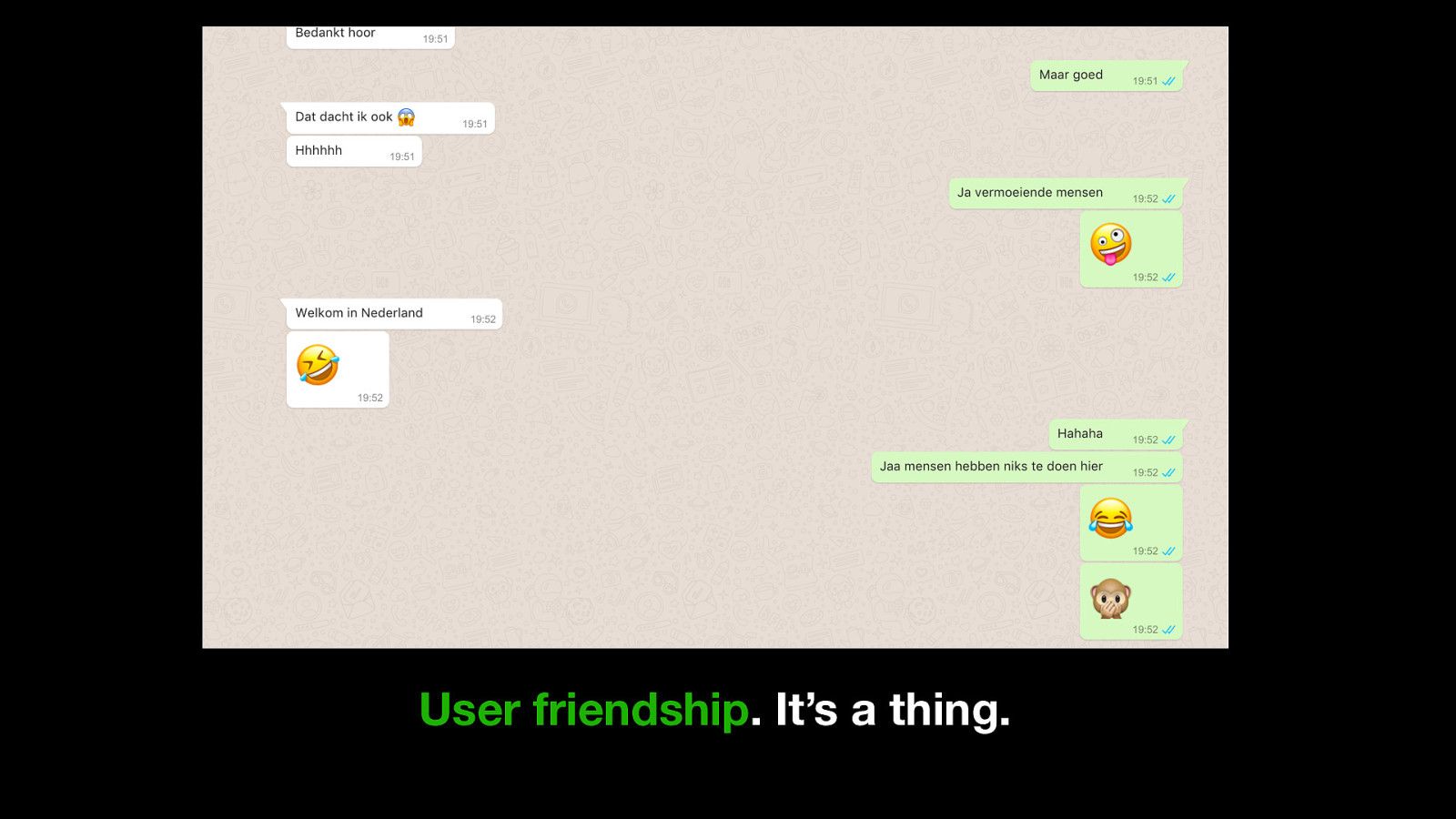
User friendship. It’s a thing. How can we as designers and developers understand the people we serve? If we want to achieve this great connection via a screen, we should think of our users and invest in them like they are our friends. I’d like to call this user friendship and it’s the most important research method that we designers and developers should have in our toolbox.
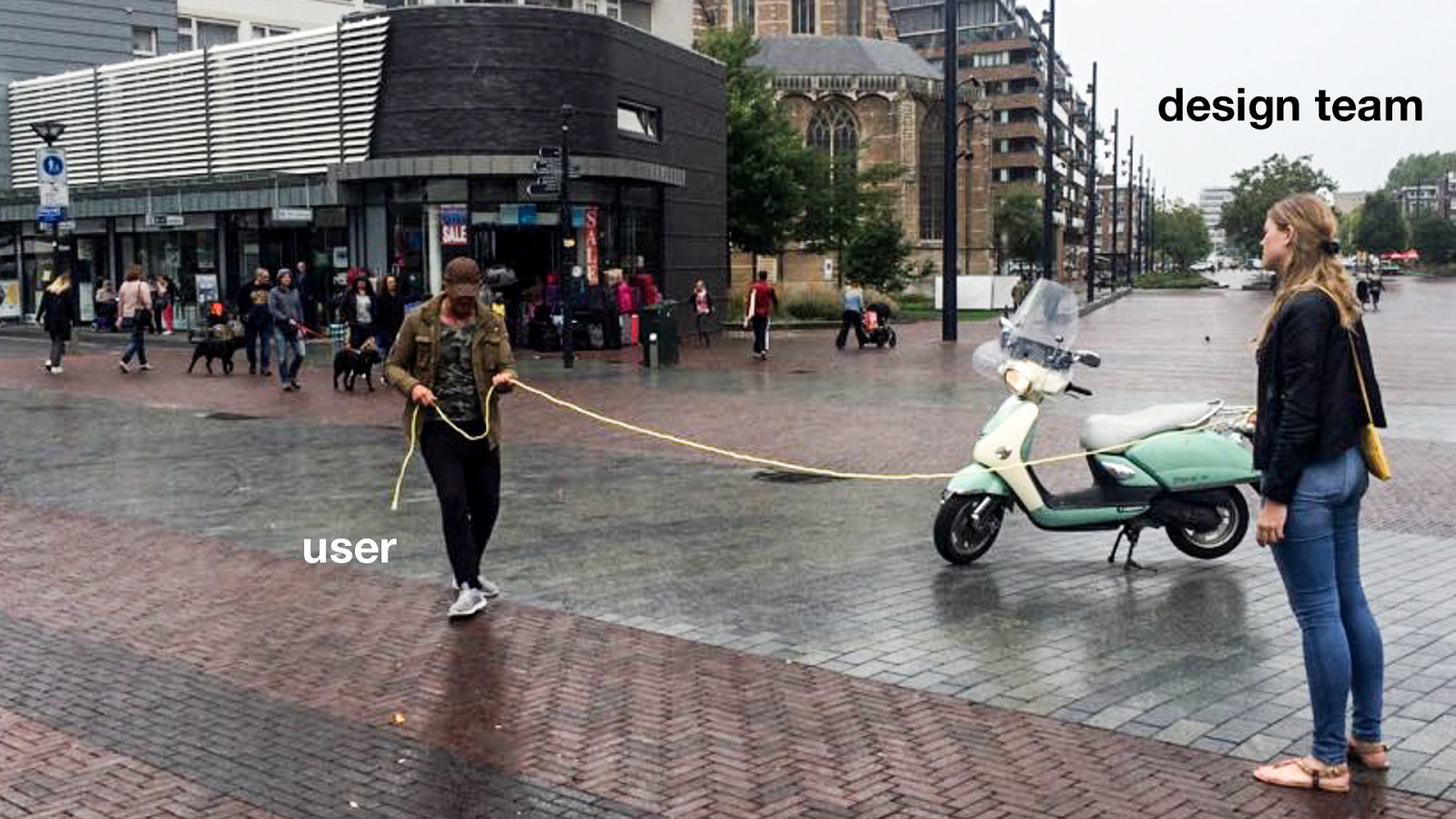
design team user The initiative for starting a great friendship starts with us. It’s scary. It’s outside of our comfort zones. But we are connected and neither of us can escape. We are tied together. Users are stuck with us. You might even say they’re married to a front end developer.
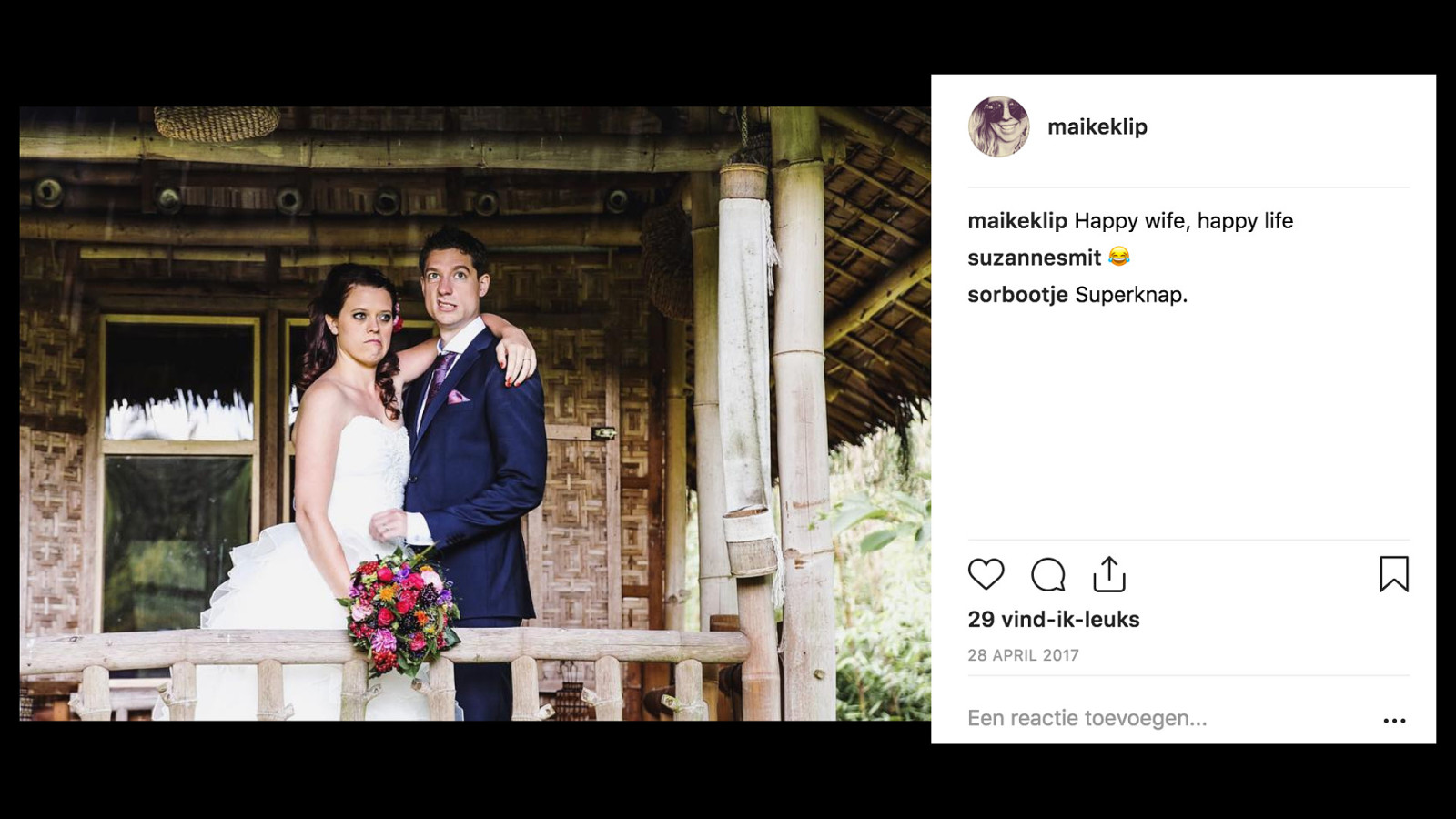
And you know, if I were married to a front end developer… which luckily enough I am. I’m happy that he takes the time to get to know me, understands me, comes up with silly technical workarounds just because they work for me, has patience, that he cares… that he does anything for a happy relationship.
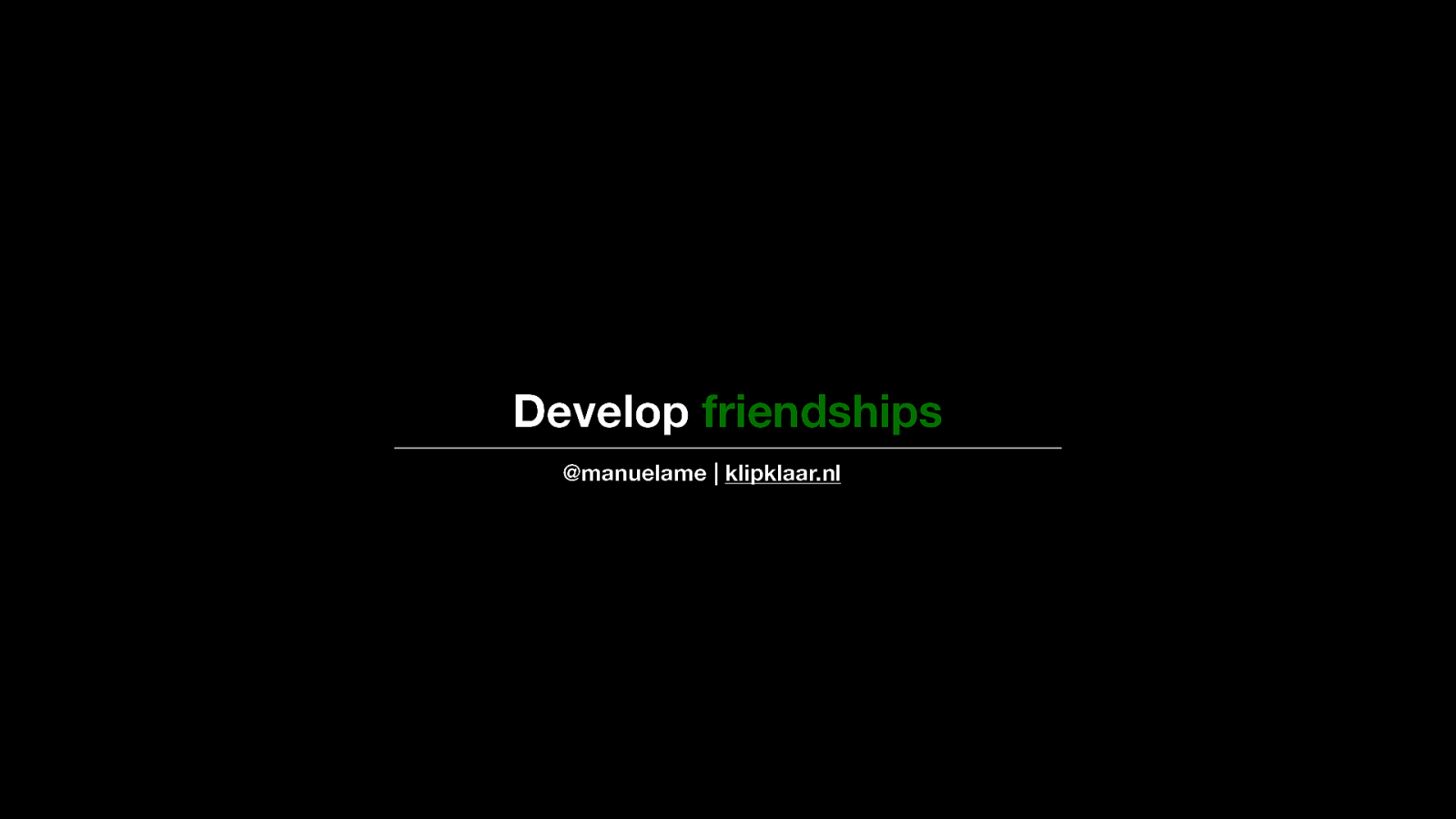
And I wish you a happy relationship with your user as well. Good luck. And thank you very much.